Britain’s sovereignty will be in jeopardy if it allows Chinese tech giant Huawei to build its 5G network, Donald Trump’s Secretary of State has warned.
In an escalation of pressure on Boris Johnson, Mike Pompeo said the UK had a “momentous” decision to make this week over whether to allow Huawei to form part of the UK’s 5G infrastructure.
The prime minister is on a collision course with Mr Trump’s administration over the Chinese telecoms giant – which the US has banned from its 5G networks over potential security risks and urged allies to do the same.
Download the new Independent Premium app
Sharing the full story, not just the headlines
Ministers are expected to make a decision on Huawei at a crunch meeting of the National Security Council on Tuesday, with reports emerging that Mr Johnson is poised to allow Huawei restricted access to the UK’s network.
The tensions come just days before post-Brexit trade talks were due to begin, prompting fears over the impact of a row with Mr Trump on a crucial trade deal with the US.
Mr Pompeo, who will visit the UK this week, wrote on Twitter: “The UK has a momentous decision ahead on 5G.
“British MP Tom Tugendhat gets it right: ‘The truth is that only nations able to protect their data will be sovereign’.”
He pointed to comments by the Conservative former chair of the foreign affairs committee, who has spoken out against allowing Huawei access to super-fast 5G network.
Mr Tugendhat said: “Sovereignty means control of data as much as land.
“We need to decide what we’re willing to invest in and who were willing to share our tech with.
“The real costs will come later if we get this wrong and allow Huawei to run 5G.”
Jeremy Hunt, the former foreign secretary, warned against the UK becoming “dependent” on the Chinese company for something so vital.
He told BBC Radio 4’s Today programme: “I must admit I always wondered whether it was wise to allow ourselves to become technologically dependent on another country, whichever country, for something as critical as 5G technology.
The latest news on Brexit, politics and beyond direct to your inbox
“That is my view, but I would say if the decision goes the other way this week, as some of the signs seem to indicate it might, I hope there will also be some reflection in the US because we have never needed the Western alliance to be stronger than now.”
But Robert Buckland, the justice secretary, said the government would not bow to outside pressure and it would take a decision in the UK’s national interest.
“The decision we make will be based upon our own sovereign right to choose. It’s Britain that will have to live with the consequences of that,” he told the BBC’s Westminster Hour.
“There are risks but we will make an informed decision based on the evidence and we will do so in an autonomous way.”
Peter Ricketts, a crossbench peer and former national security adviser, said the risk is being blown out of proportion.
“I’m quite sure, knowing the intelligence community well, that they won’t be recommending to ministers, the course of action that is likely to mess up our intelligence relationship with the US or prejudice UK security.

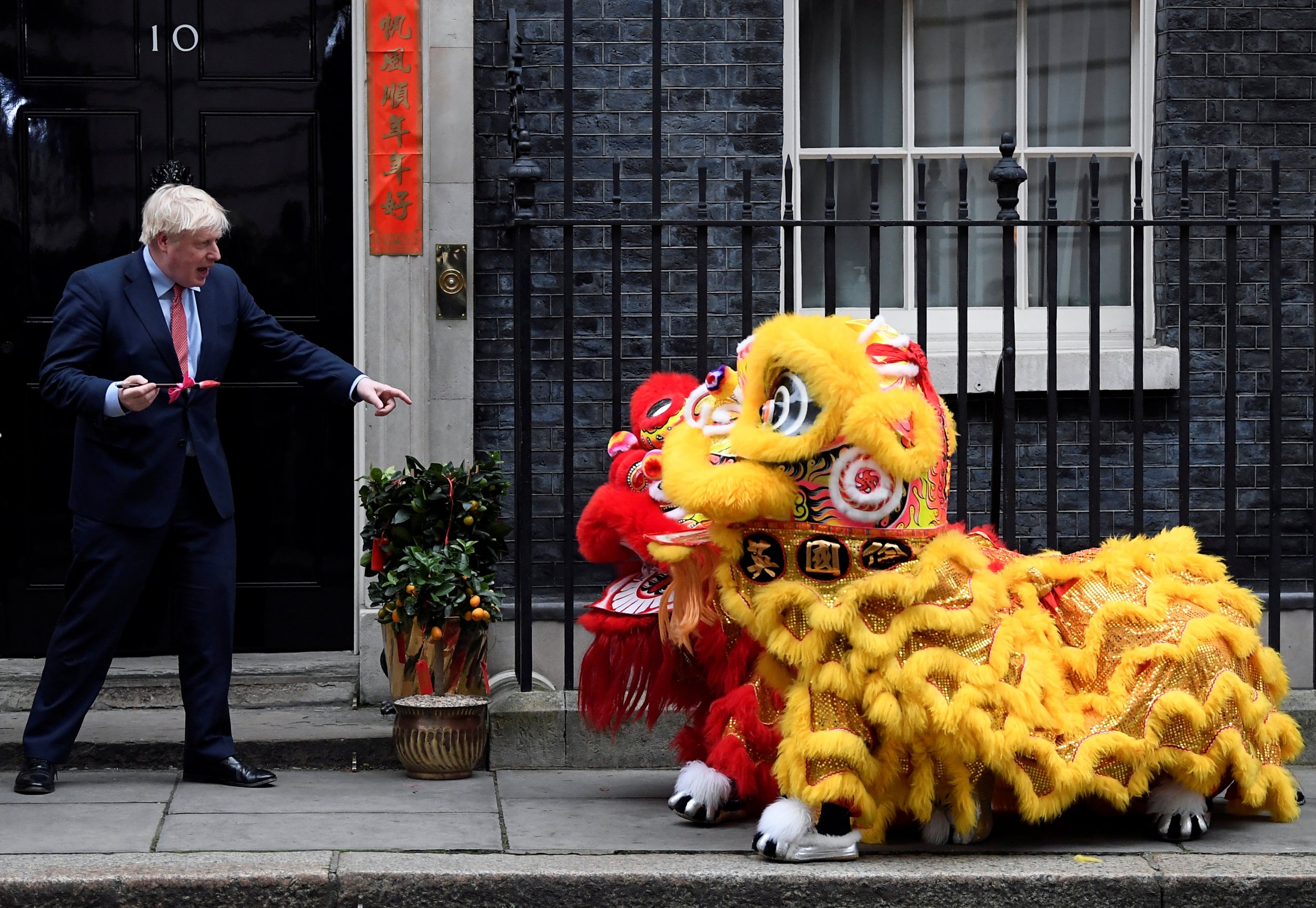
1/50 24 January 2020
Boris Johnson gestures as he watches a performance during celebrations for Chinese Lunar New Year at Downing Street in London
Reuters
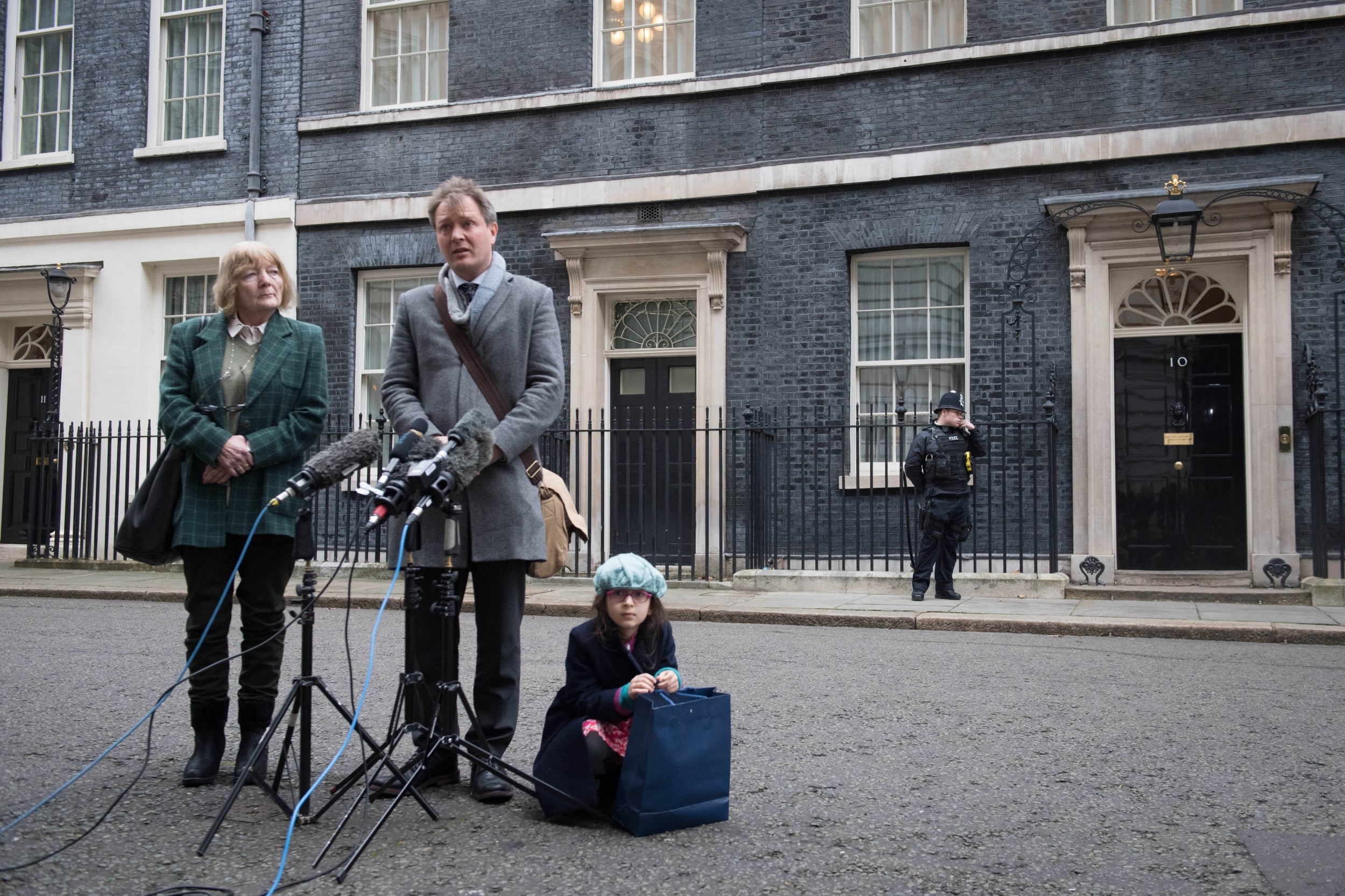
2/50 23 January 2020
Gabriella Zaghari-Ratcliffe stands next to her father Richard Ratcliffe, the husband of Nazanin Zaghari-Ratcliffe and his mother Barbara, as they address the media in Downing Street following a meeting with Prime Minister Boris Johnson
PA
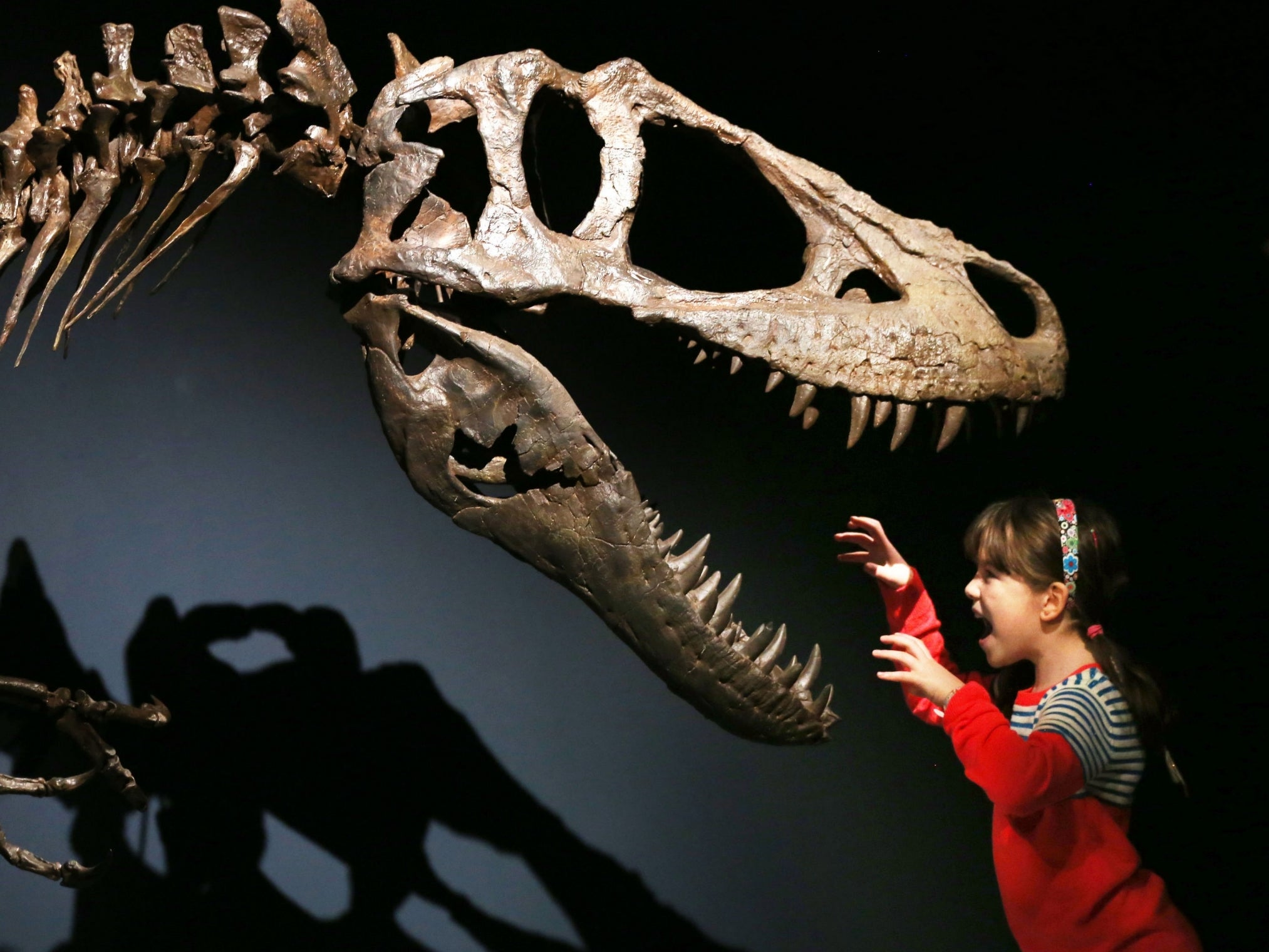
3/50 22 January 2020
Rosa Connolly takes a close look during a preview of the Tyrannosaurs exhibition at the National Museum of Scotland, Edinburgh
PA
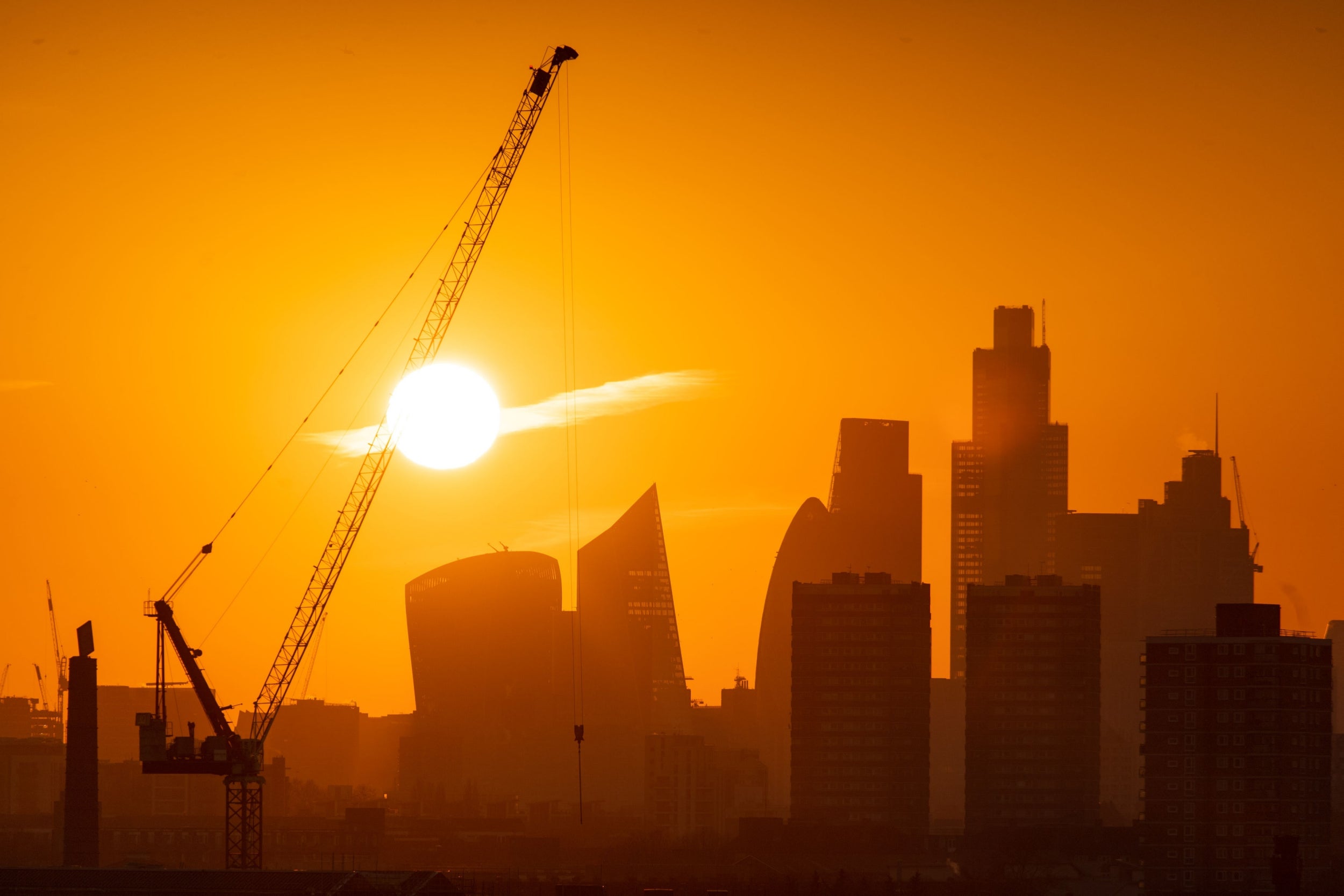
4/50 21 January 2020
The sun sets behind tower cranes and the London skyline in the city financial district
PA
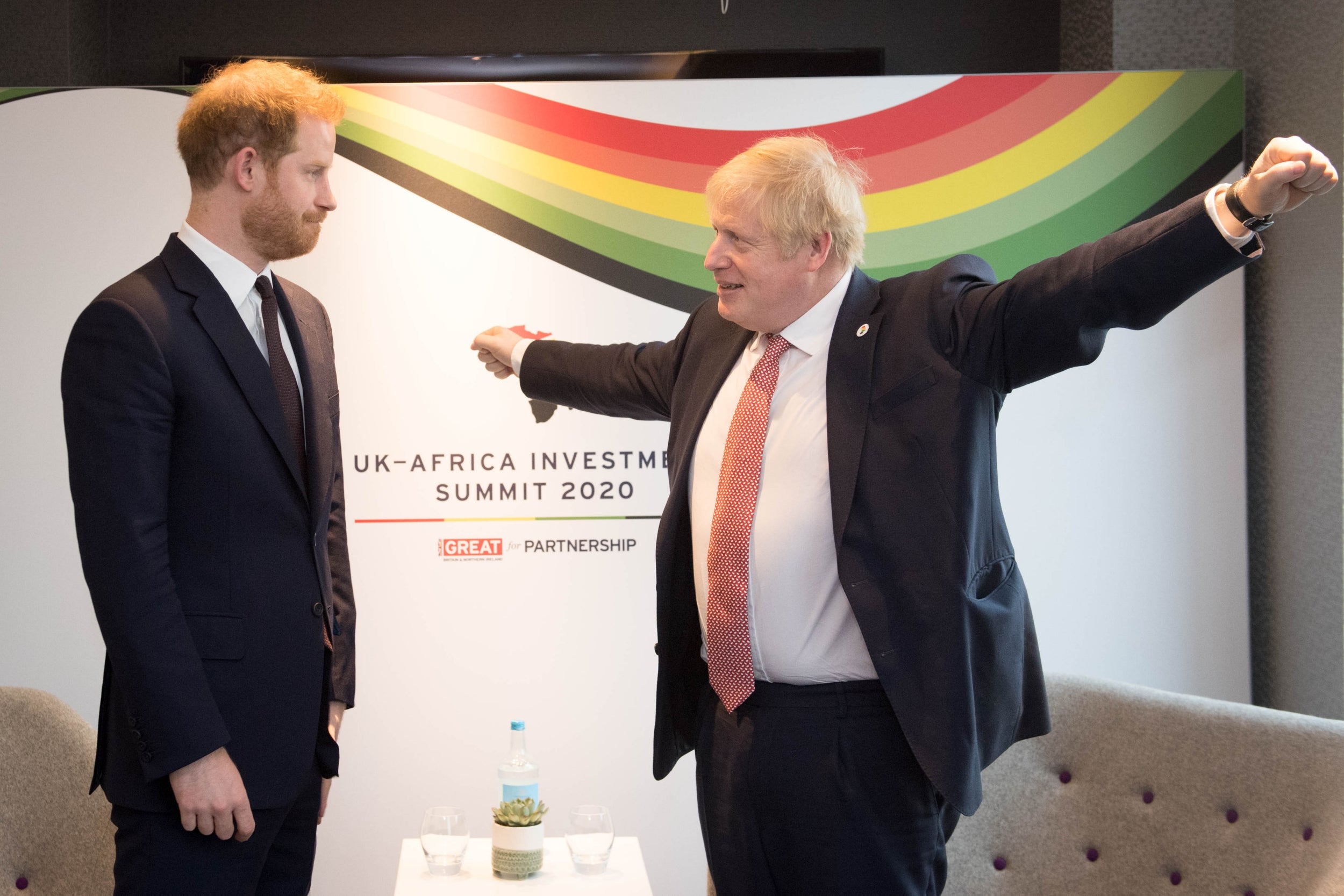
5/50 20 January 2020
Prince Harry, Duke of Sussex, speaks with Prime Minister Boris Johnson as they attend the UK-Africa Investment Summit at the Intercontinental Hotel in London. Johnson is hosting African leaders and senior government representatives along with British and African businesses during the UK-Africa Investment Summit, aimed at strengthening the UKs economic partnership with African nations
Getty
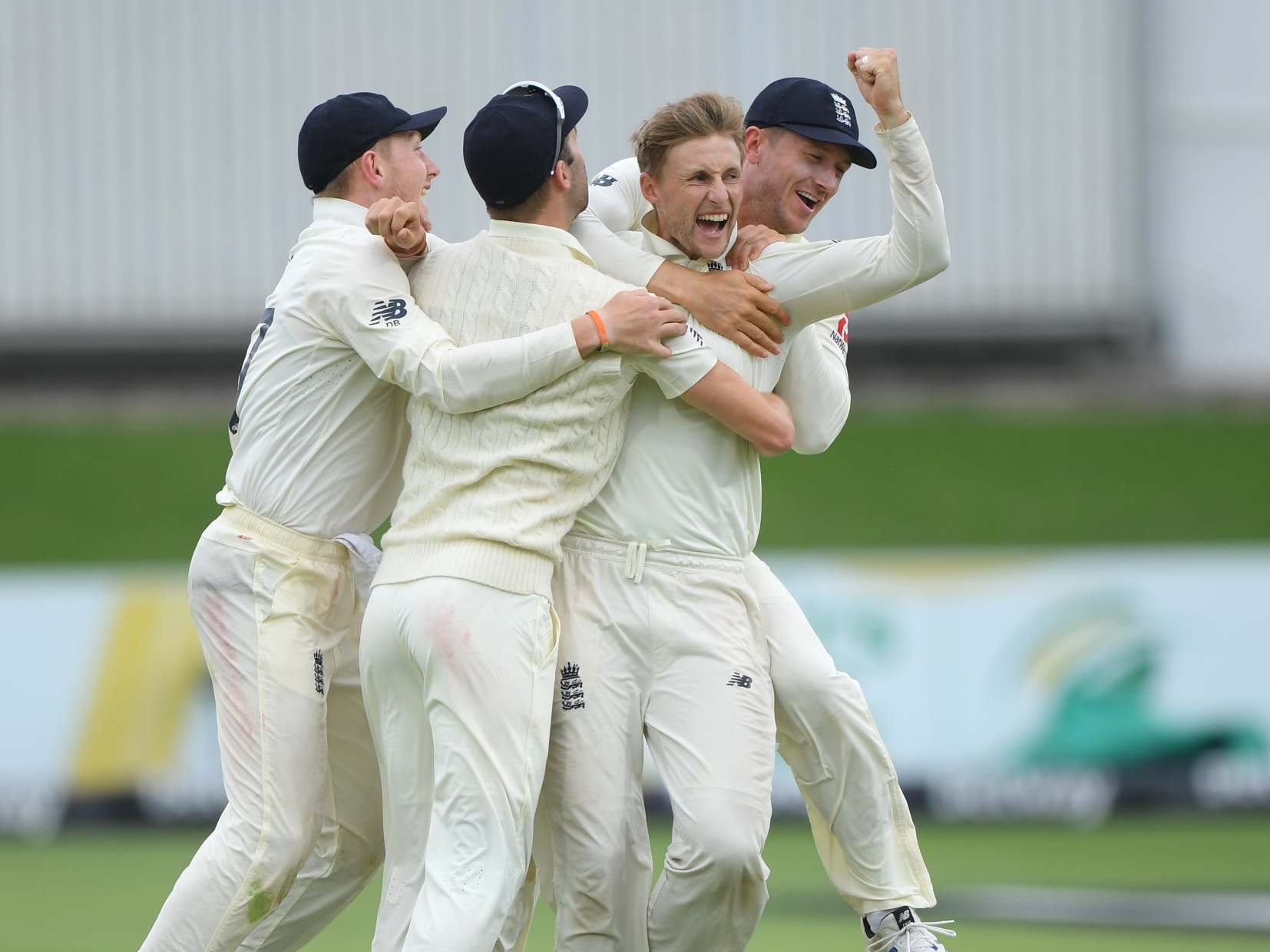
6/50 19 January 2020
Joe Root celebrates with his England team mates after taking the wicket of Rassie van der Dussen during day four of the third Test against South Africa in Port Elizabeth. He took a career-best four wickets during the day’s play, which saw the home side follow on in their second innings. They trail England by 188 runs going into day five
Getty
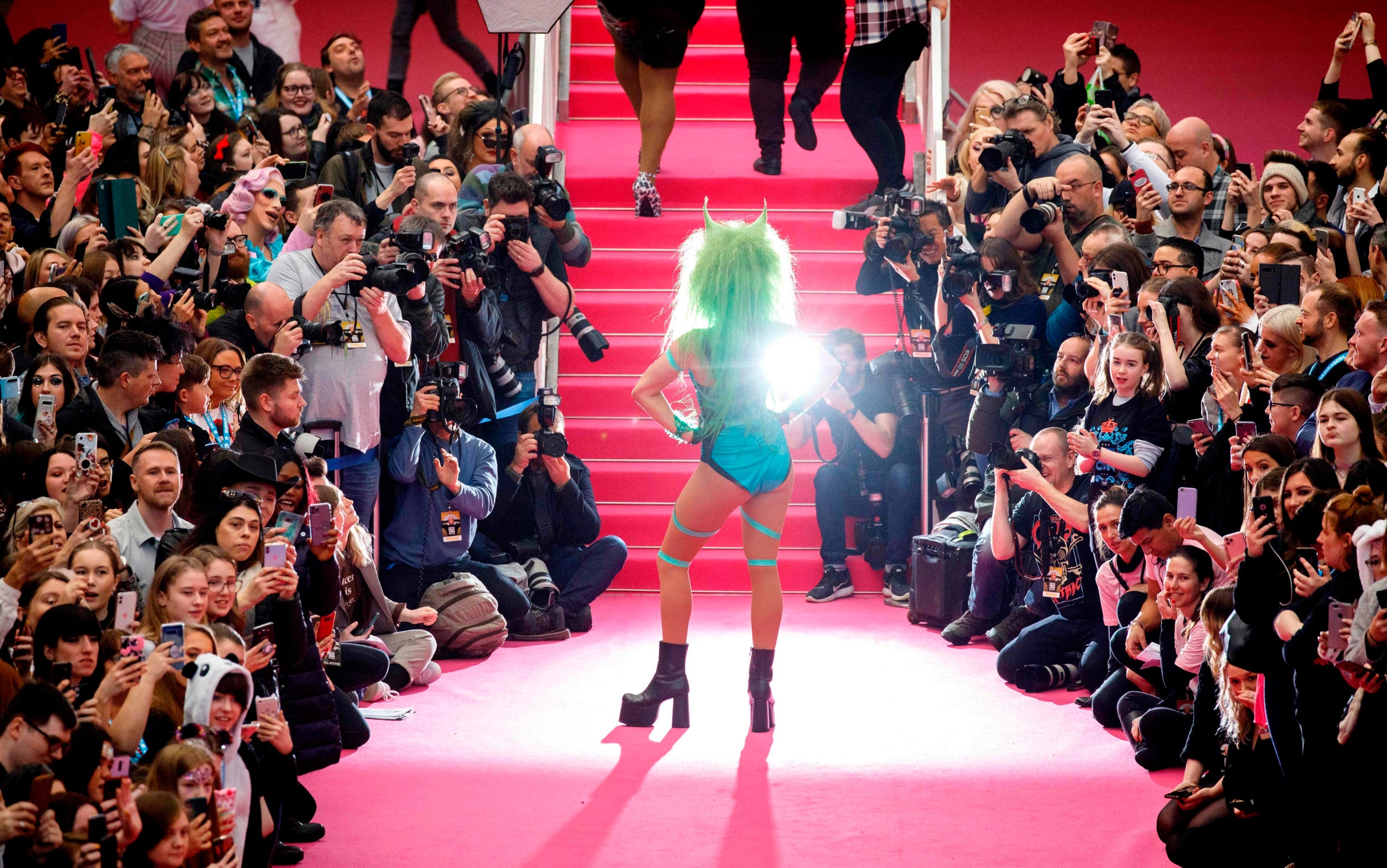
7/50 18 January 2020
Drag queens pose on the pink carpet as they participate in the “Queen’s Walk” during RuPaul’s DragCon UK at Kensington Olympia
AFP via Getty
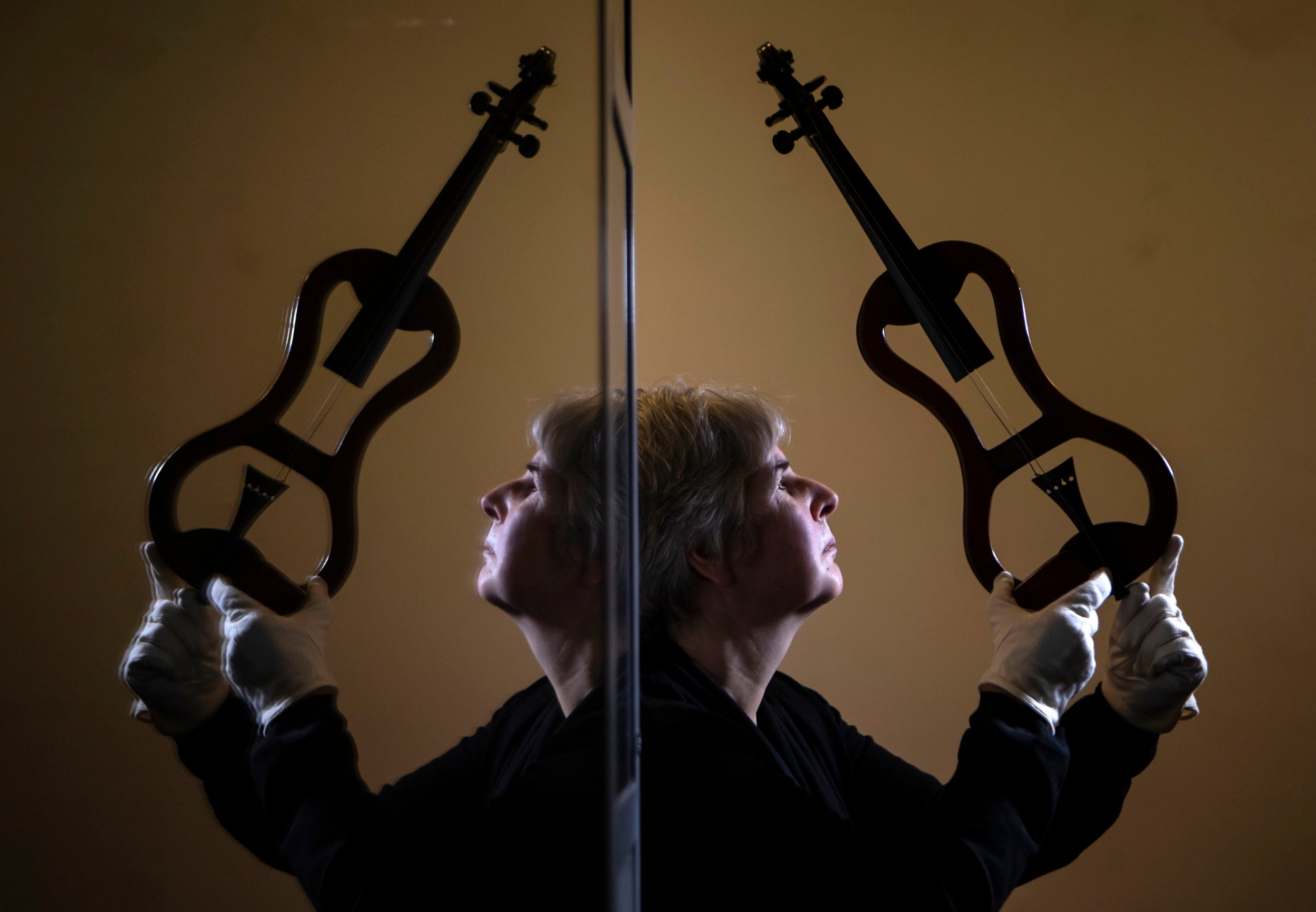
8/50 17 January 2020
Kitty Ross, curator of social history, is pictured reflected in a display cabinet while holding a skeleton violin from the 1880s that forms part of the Sounds of our City exhibition at the Abbey House Museum in Leeds
PA

9/50 16 January 2020
Britain’s Harry, Duke of Sussex (C), hosts the Rugby League World Cup 2021 draw in the gardens of Buckingham Palace in London, Britain, 16 Ja​nuary 2020. The Duke, who is expected to step back from senior Royal duties, spoke with Ruby League ambassadors and children from St Vincent de Paul Catholic Primary School in London
EPA
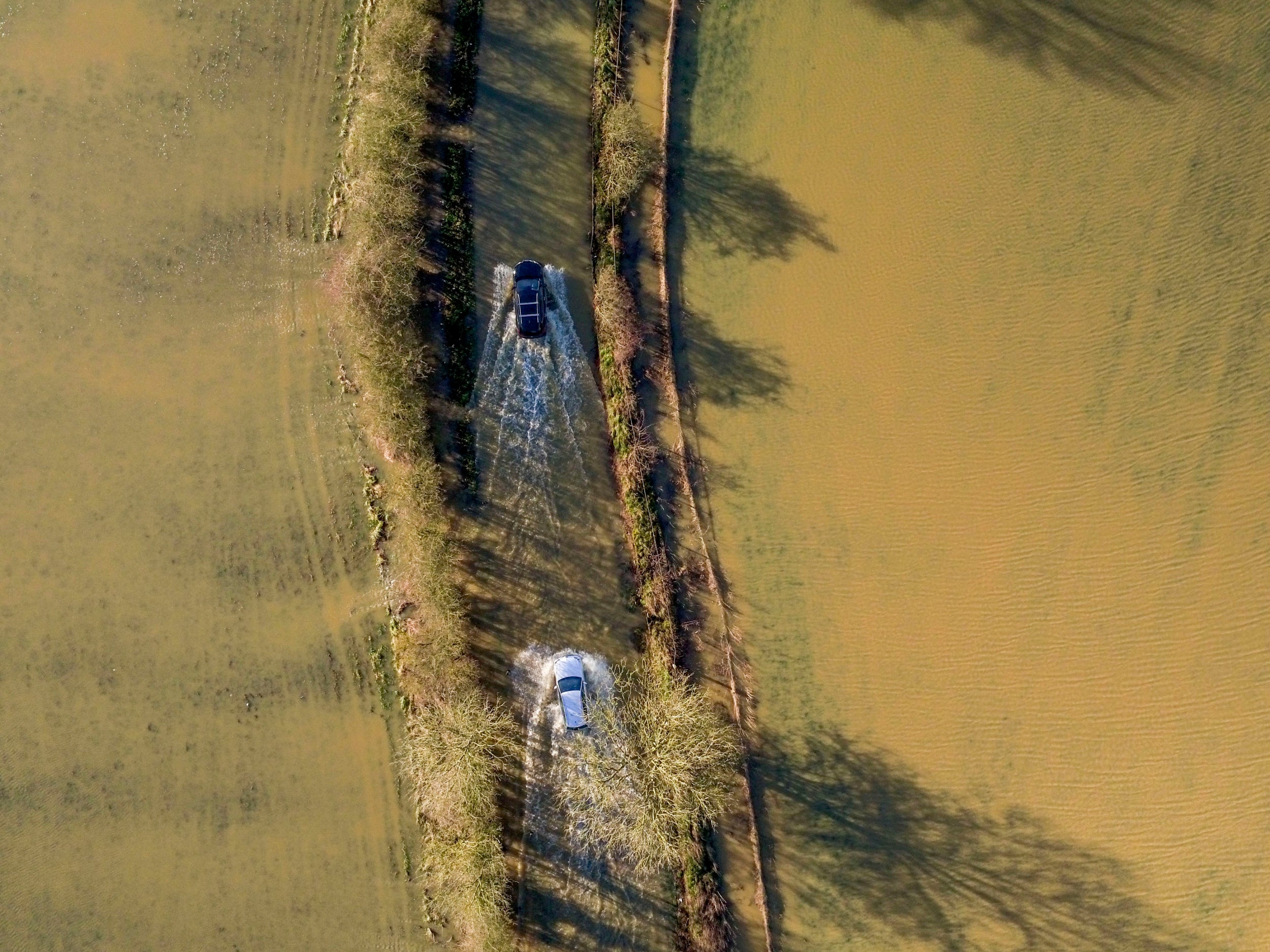
10/50 15 January 2020
Vehicles negotiate the flooded B4069 road at Christian Malford in Wiltshire after the river Avon burst its banks
PA
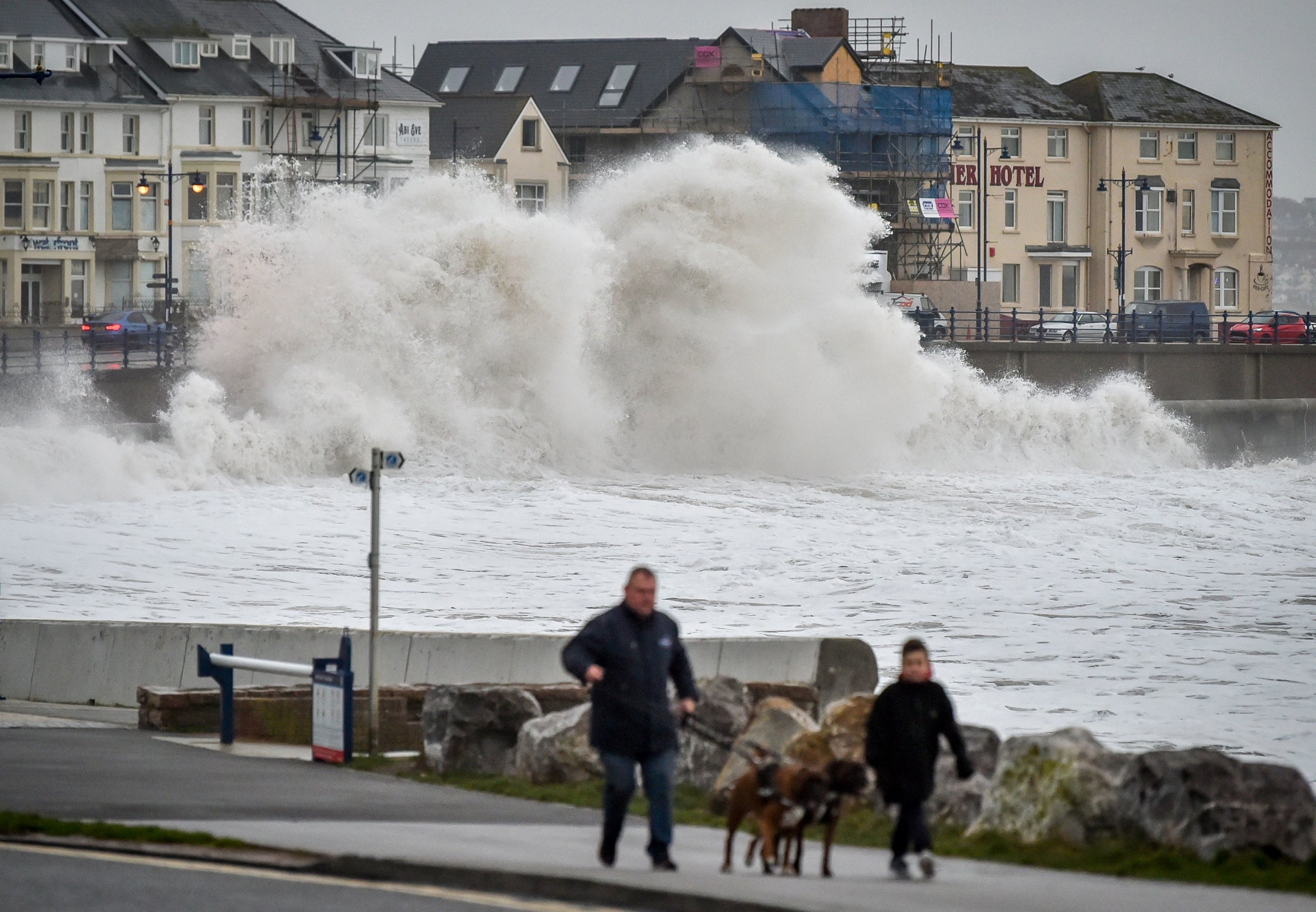
11/50 14 January 2020
Huge waves hit the sea wall in Porthcawl, Wales, as gales of up to 80mph from Storm Brendan caused disruption around the UK
PA

12/50 13 January 2020
Puppeteers from Vision Mechanic rehearsing with Scotland’s largest puppet, a ten-metre tall sea goddess called Storm, in the grounds of the Museum of Flight, East Lothian. Made entirely from recycled materials, it was unveiled ahead of its debut at the Celtic Connections Costal Day celebrations in Glasgow this weekend
PA

13/50 12 January 2020
A windsurfer jumps in the air after hitting a wave in the sea off of West Wittering beach in West Sussex
PA
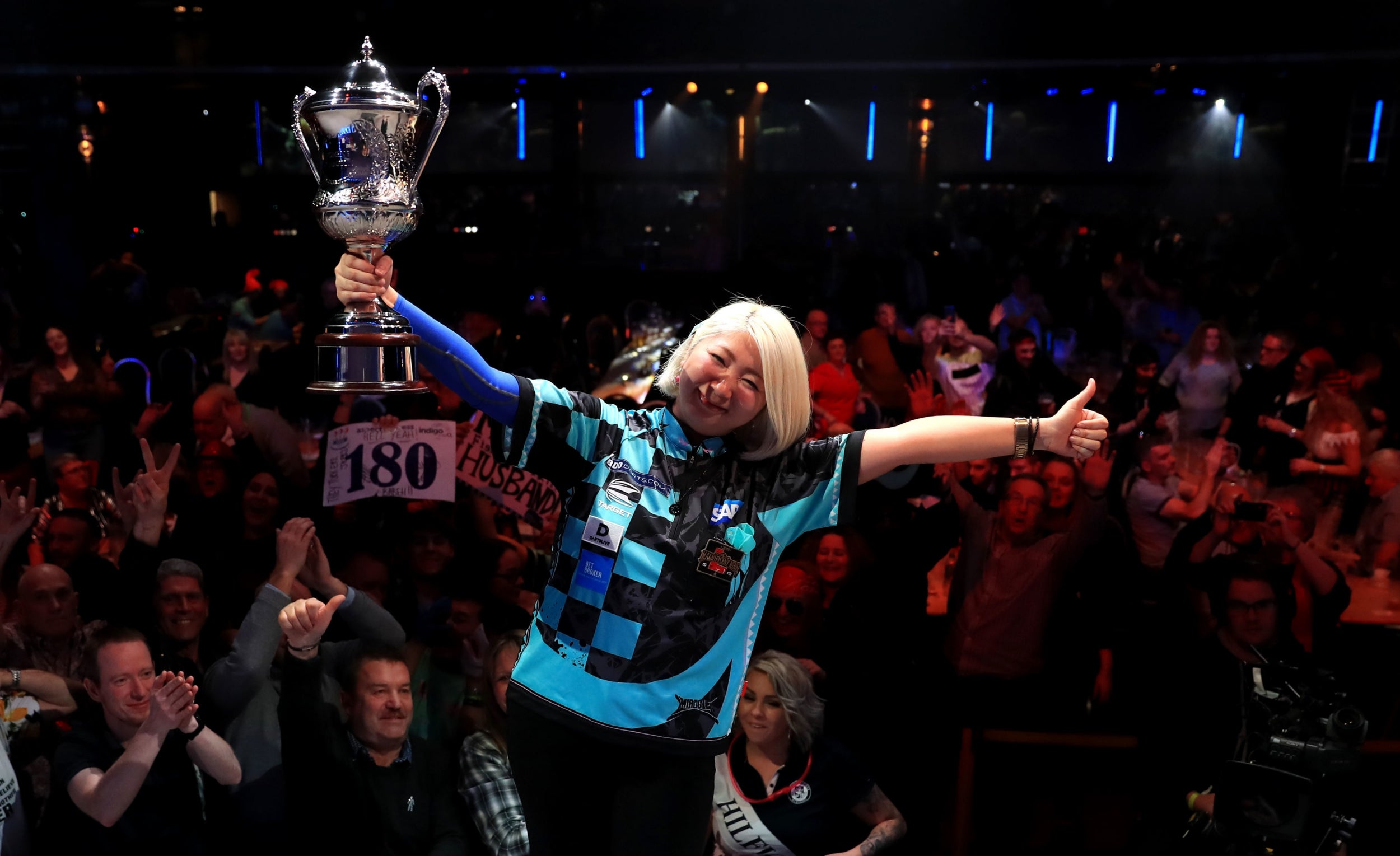
14/50 11 January 2020
Mikuru Suzuki celebrates winning the women’s championship of the BDO World Professional Darts Championships 2020 in London
PA
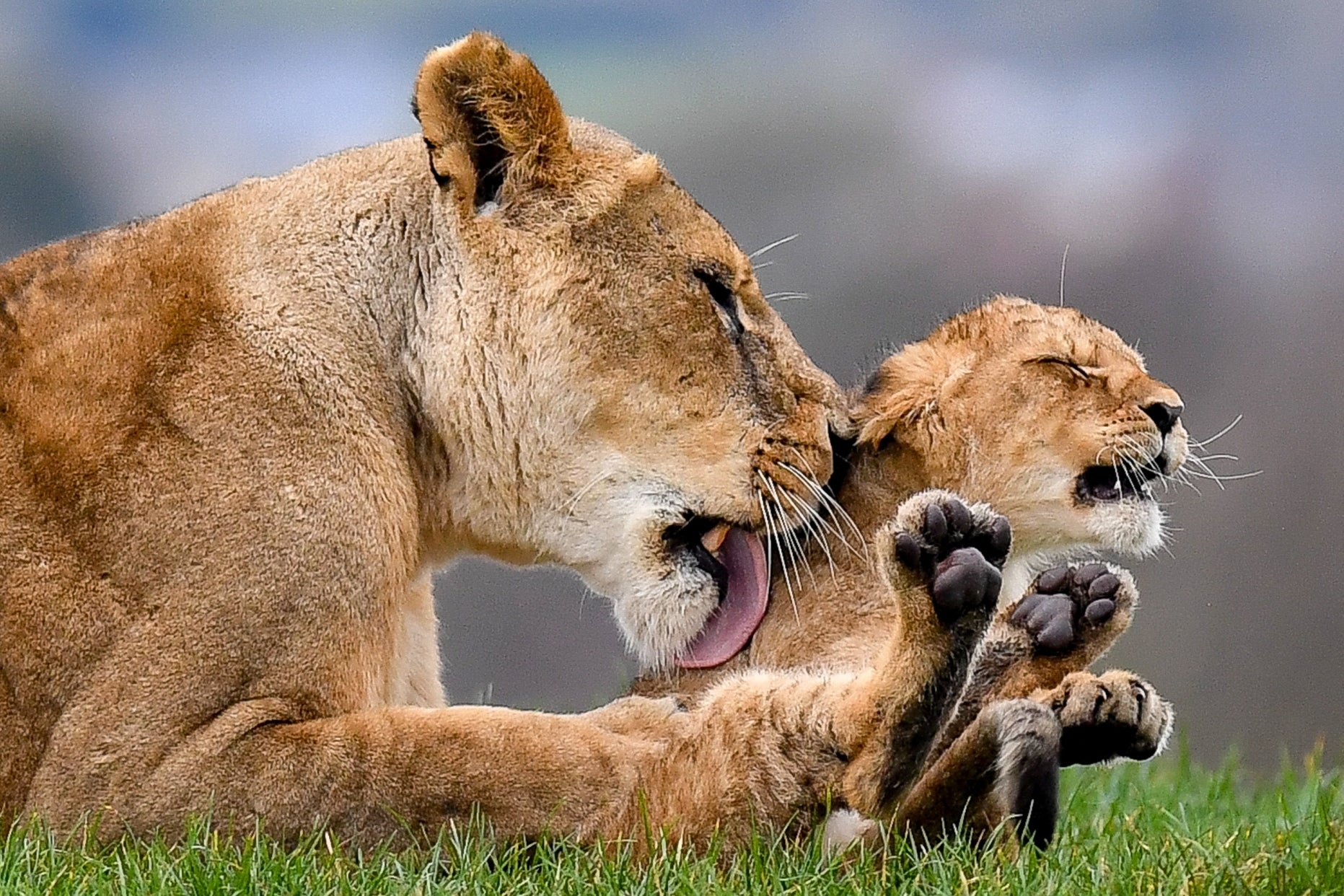
15/50 10 January 2020
One of seven new lion cubs at the West Midlands Safari Park in Kidderminster
PA

16/50 9 January 2020
Rawson Robinson, from Nenthead, on the Cumbria and Northumberland border clears snow from the model village he has built in his garden
PA
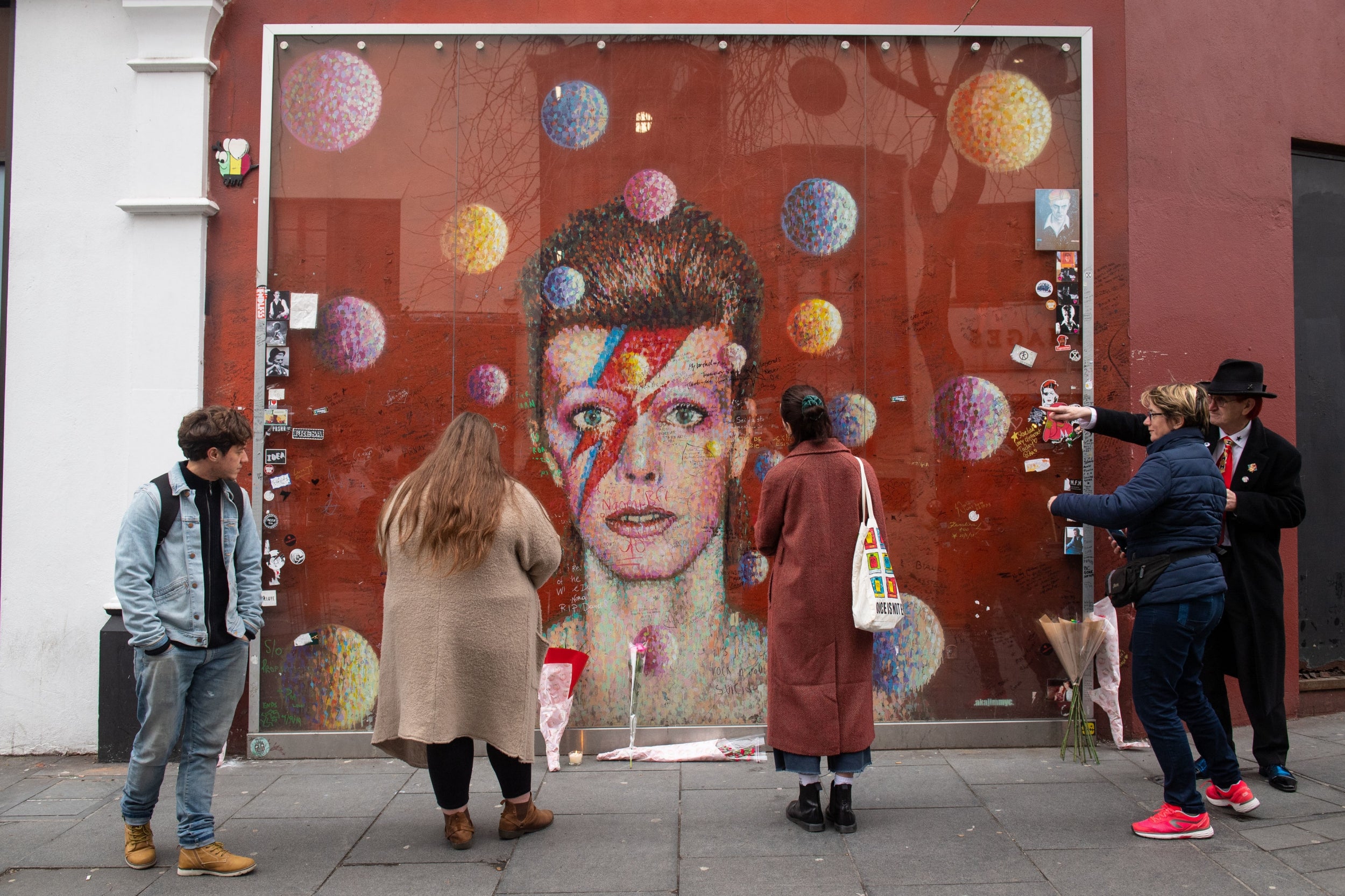
17/50 8 January 2020
People read messages written on the David Bowie mural in Brixton, south London, on what would have been the singer’s 73rd birthday
PA
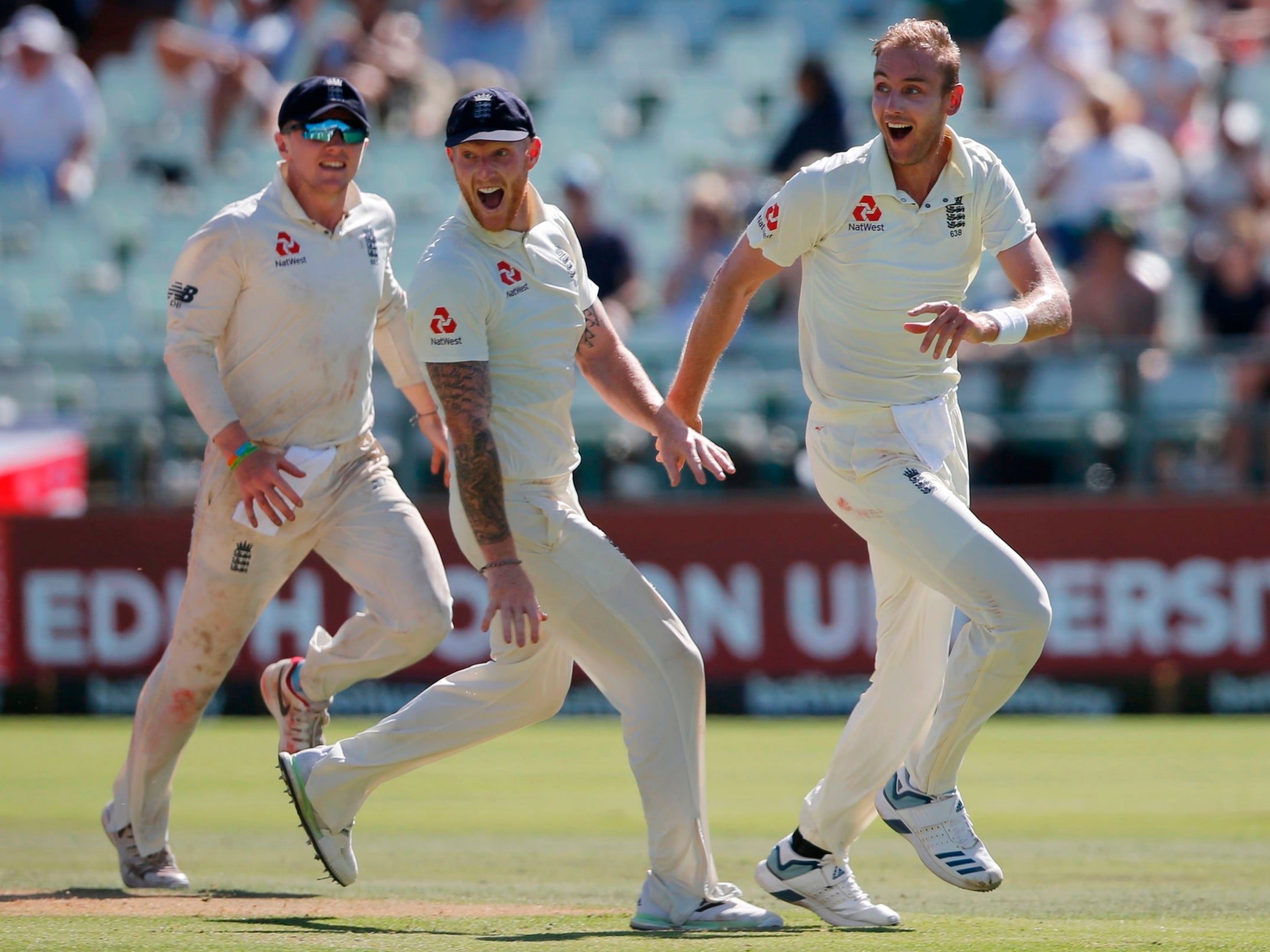
18/50 7 January 2020
England’s Stuart Broad celebrates with teammate Ben Stokes after the dismissal of South Africa’s Rassie van der Dussen during the fifth day of the second Test cricket match in Cape Town. Stokes claimed the last three wickets in the space of 14 deliveries to wrap up a 189-run win
AFP via Getty
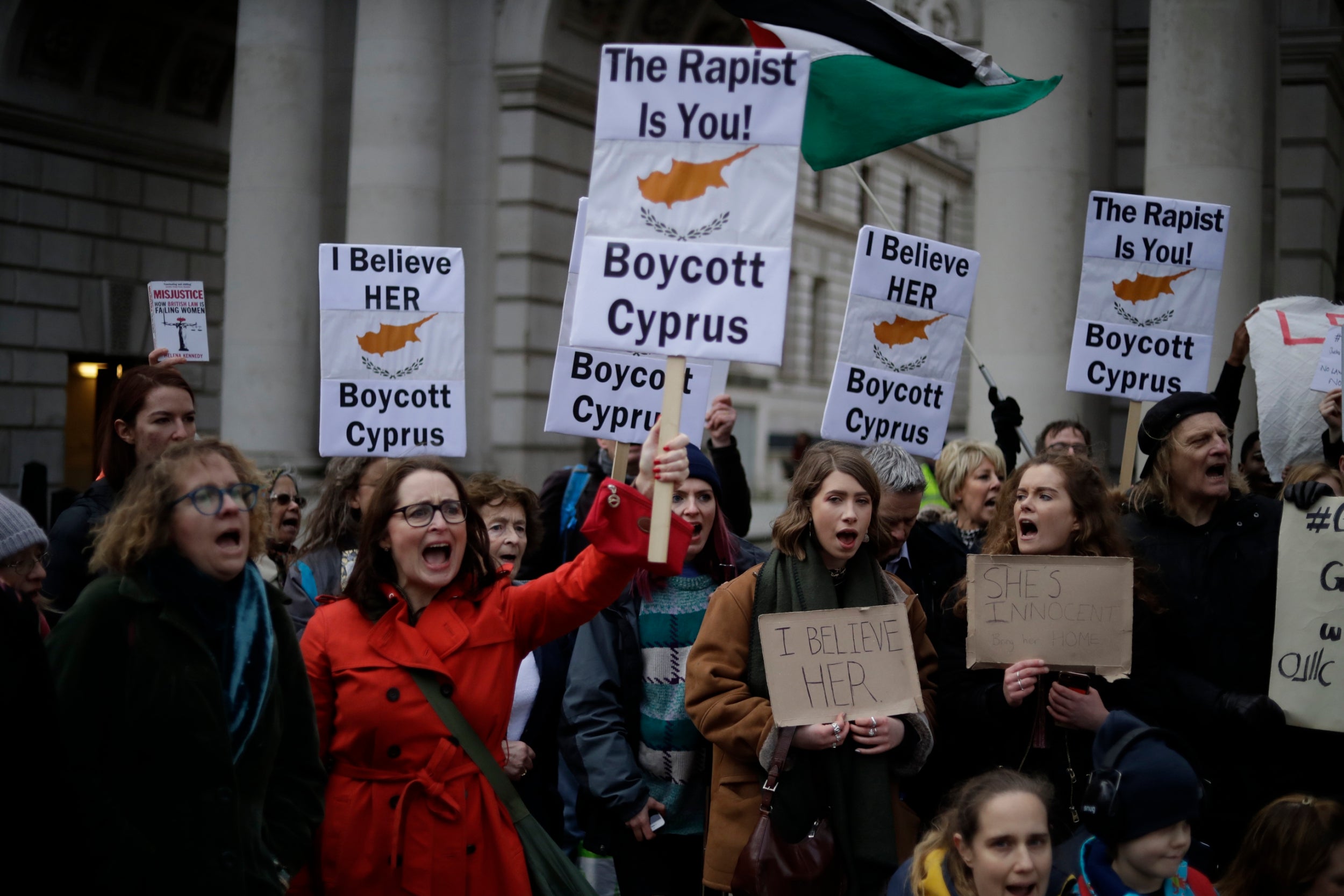
19/50 6 January 2020
Protesters in London take part in a demonstration in support of a British woman found guilty of lying about being gang raped in Cyprus
AP
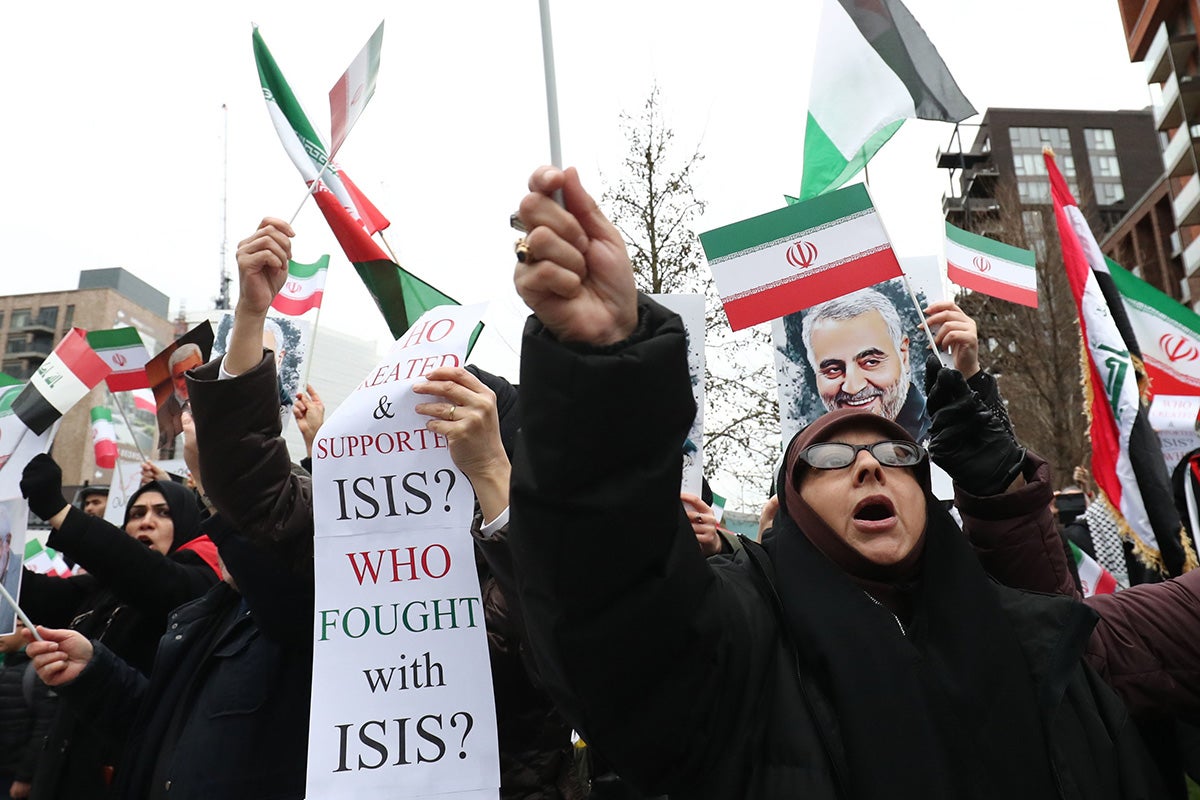
20/50 5 January 2020
Protesters demonstrate outside the US Embassy in London, after America killed Iran’s general Qassem Soleimani in a drone strike at Baghdad’s international airport
PA
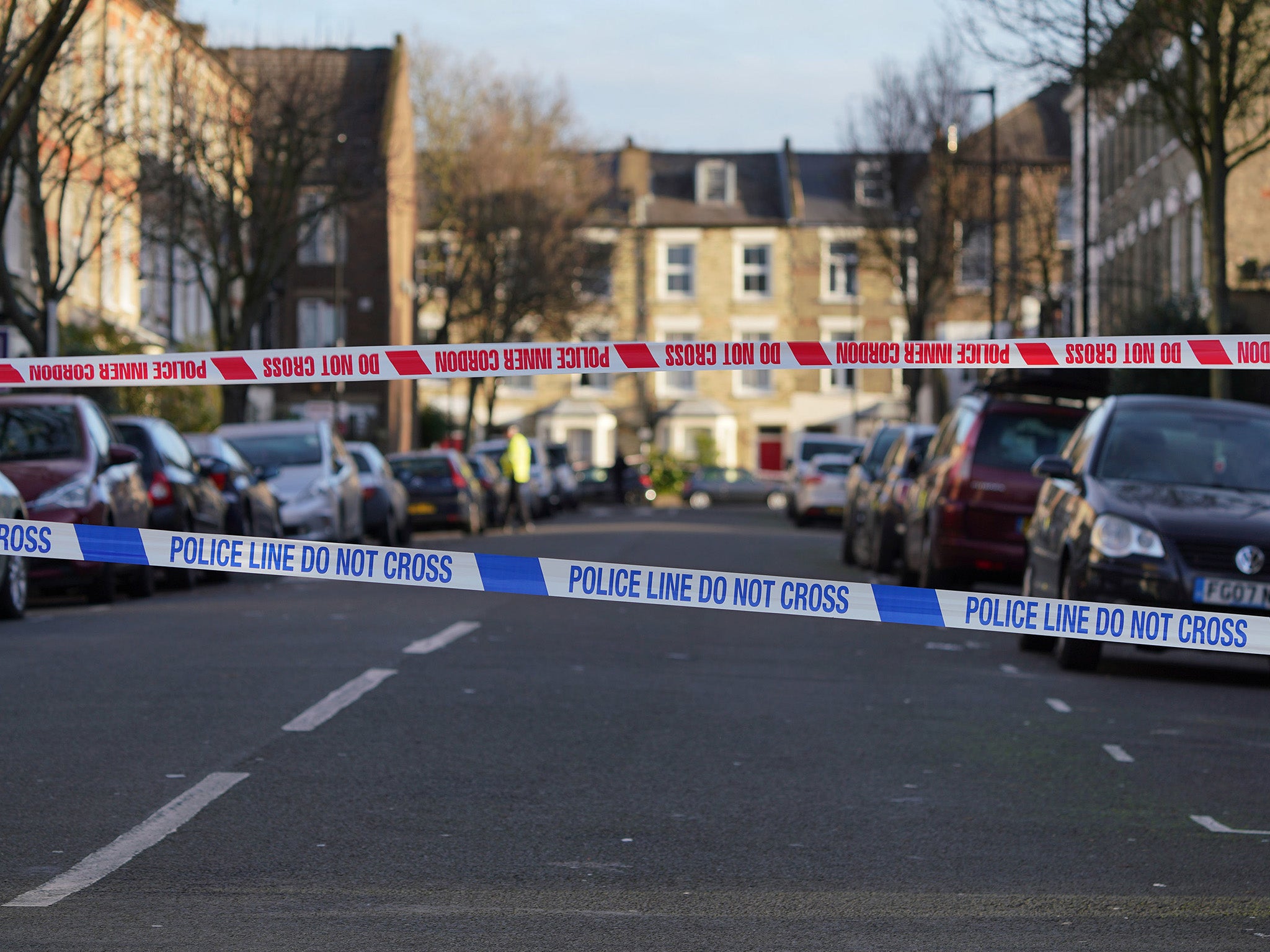
21/50 4 January 2020
Metropolitan police cordon off Charteris Road close to the junction with Lennox Road in Finsbury Park in north London, after a man was stabbed to death on Friday evening, the first murder in London in 2020
PA
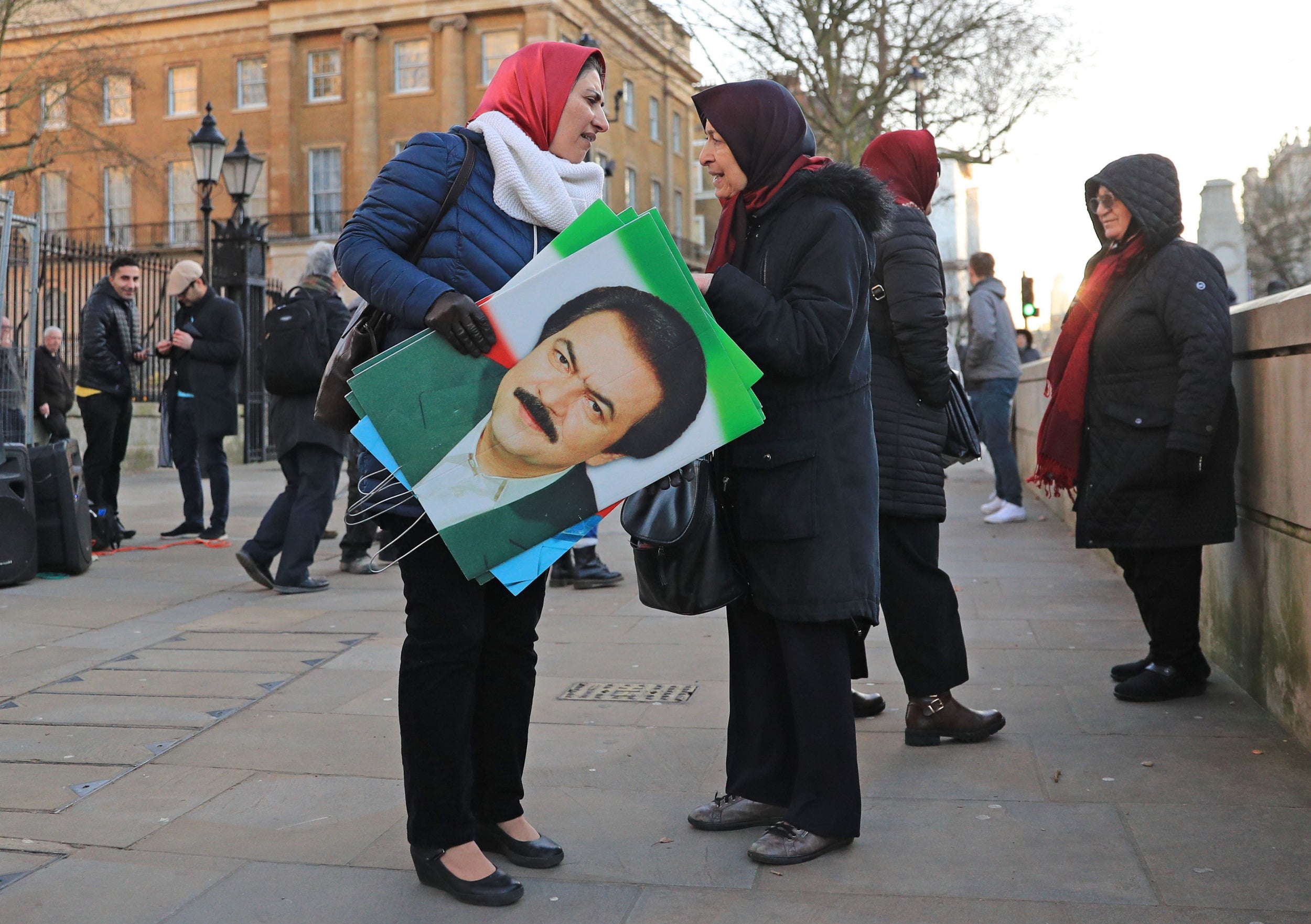
22/50 3 January 2020
Protesters, holding a photograph of the leader of the People’s Mujahedin of Iran Massoud Rajavi, outside Downing Street in London after the US killed General Qassem Soleimani in a drone strike at Baghdad’s international airport. Soleimani was head of Tehran’s elite Quds Force and Iran’s top general
PA

23/50 2 January 2020
A keeper counts squirrel-monkeys at London Zoo during the annual stocktake. Caring for more than 500 different species, ZSL London Zoo’s keepers face the challenging task of tallying up every mammal, bird, reptile, fish and invertebrate at the Zoo
AP
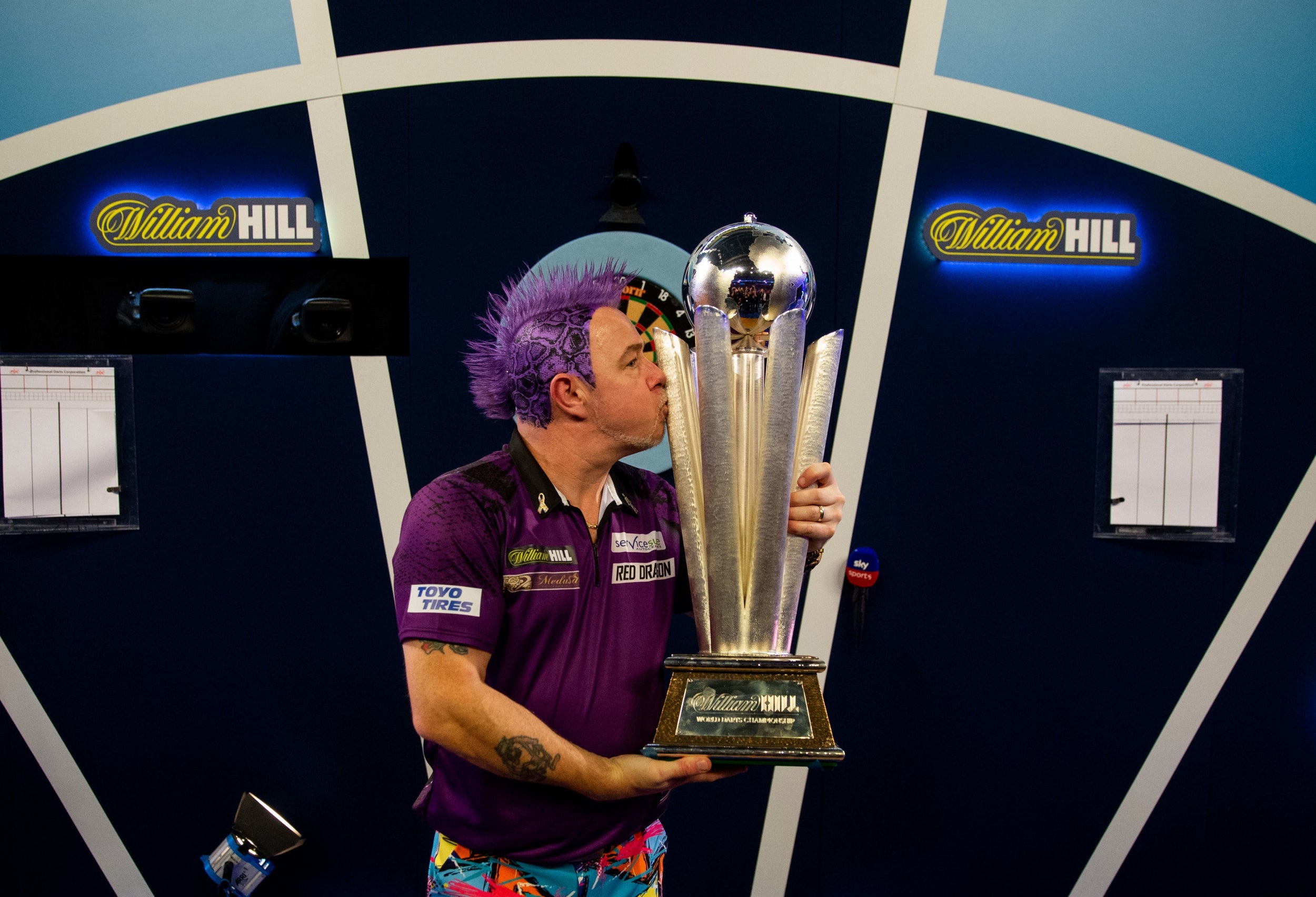
24/50 1 January 2020
Peter Wright celebrates winning with the Sid Waddell trophy at the Darts World Championships in London. He stunned Michael van Gerwen to clinch his first title 7-3
PA
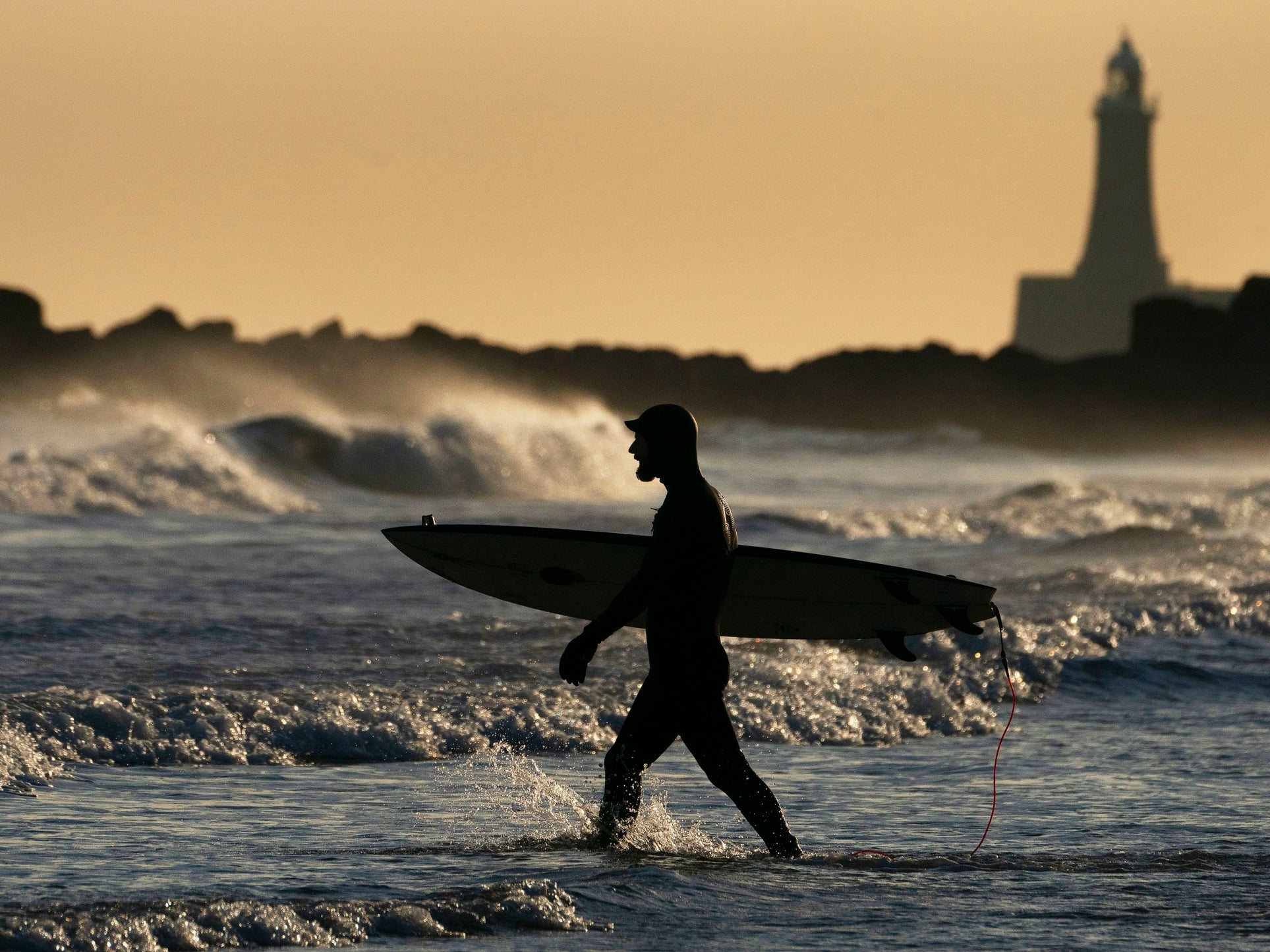
25/50 31 December 2019
Surfers at Tynemouth on the north east coast
PA

26/50 30 December 2019
Deer graze in the morning mist as cyclists ride by in Richmond Park, London
Reuters

27/50 29 December 2019
Night sky after the sunset at Whitley Bay in Northumberland
PA

28/50 28 December 2019
The Harlequins players arrive at the stadium prior to the Gallagher Premiership Rugby Big Game 12 match between Harlequins and Leicester Tigers at Twickenahm Stadium
Getty Images for Harlequins
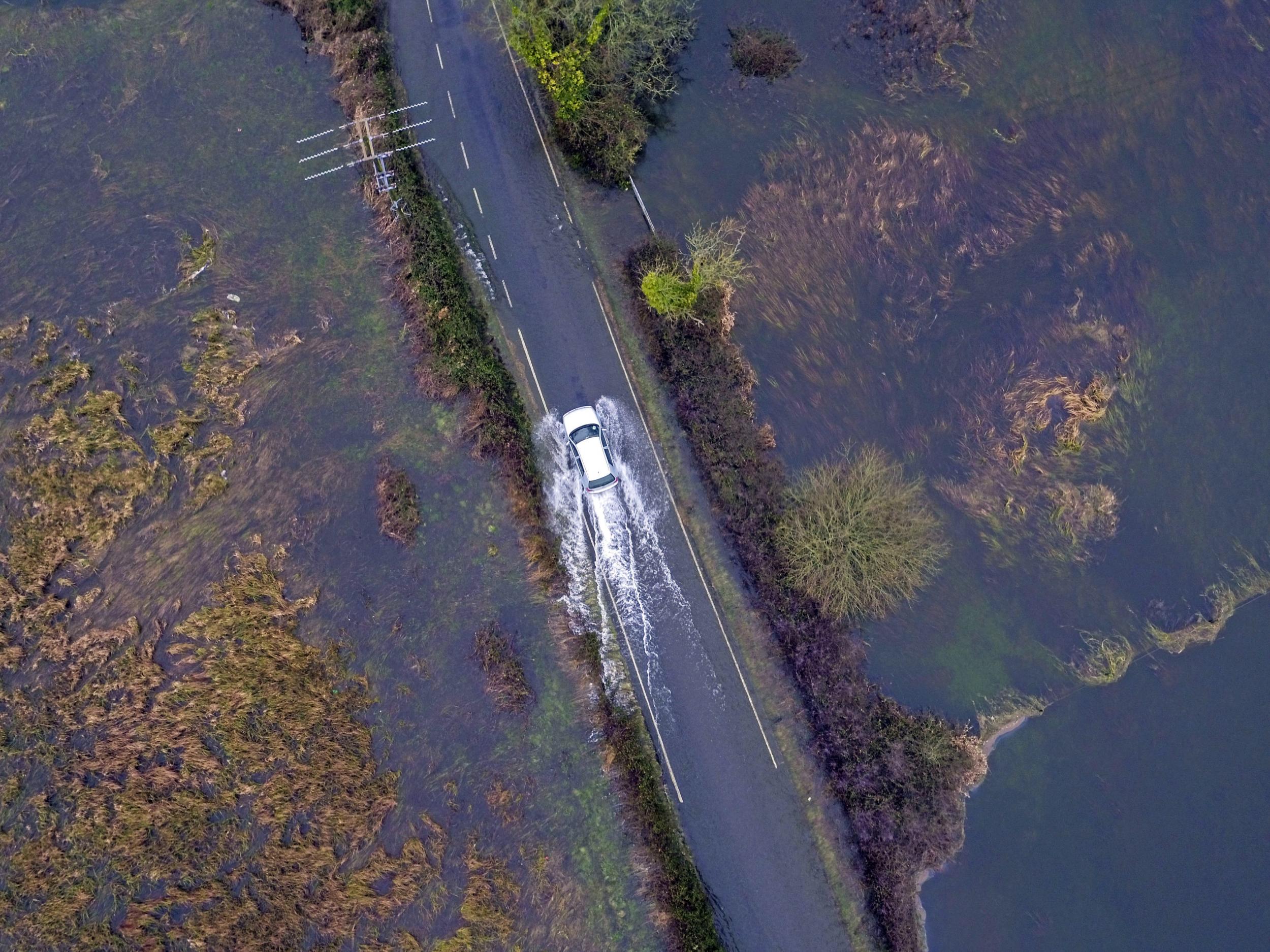
29/50 27 December 2019
A car drives through floodwater near Harbridge, north of Ringwood in Hampshire, after the river Avon burst its banks
PA

30/50 26 December 2019
Participants in the Old Surrey and West Kent Boxing Day Hunt in Chiddingstone. Hunting with horses and hounds is a Boxing Day tradition. Since the fox hunting ban in 2004, modified hunts take place using scented trails for the animals to follow
EPA

31/50 25 December 2019
Swimmers of the Serpentine Swimming Club take part in the Peter Pan Cup race, which is held every Christmas Day at the Serpentine, in central London
PA
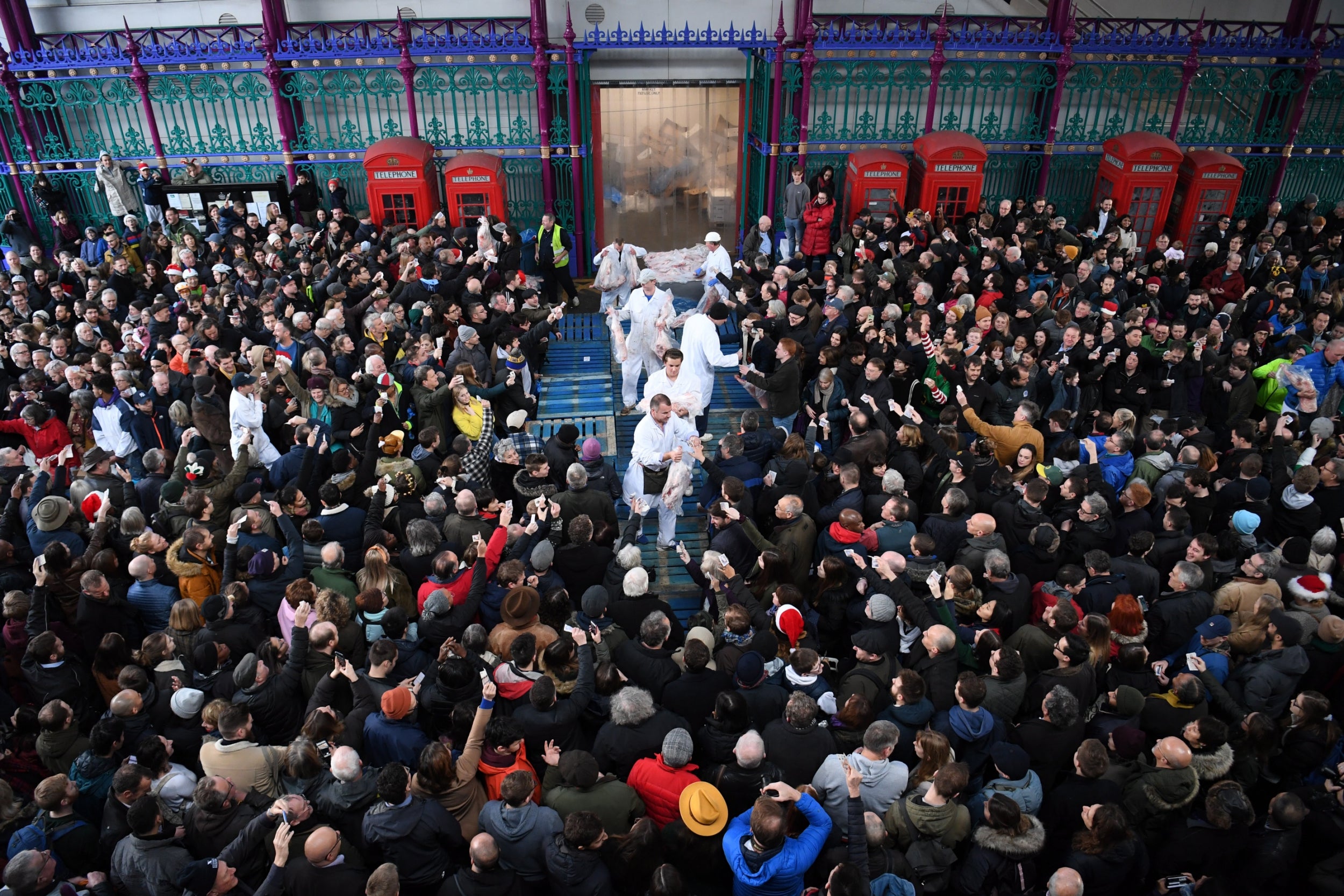
32/50 24 December 2019
Shoppers bid for cuts of meat during a Christmas Eve auction in Smithfield market in London
EPA
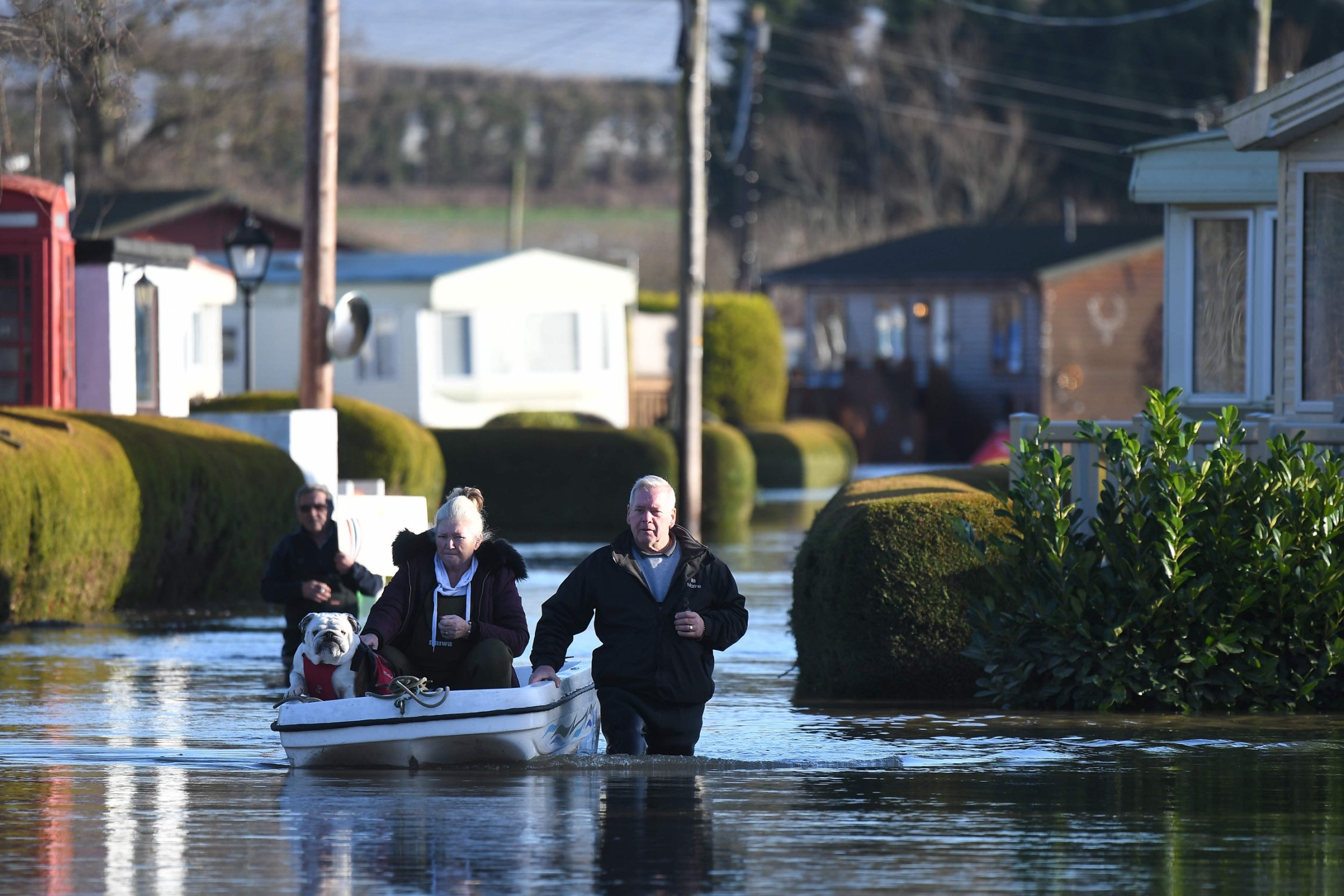
33/50 23 December 2019
Reggie the dog is rescued with a boat from flooding at the Little Venice Country Park and Marina in Maidstone
AFP via Getty
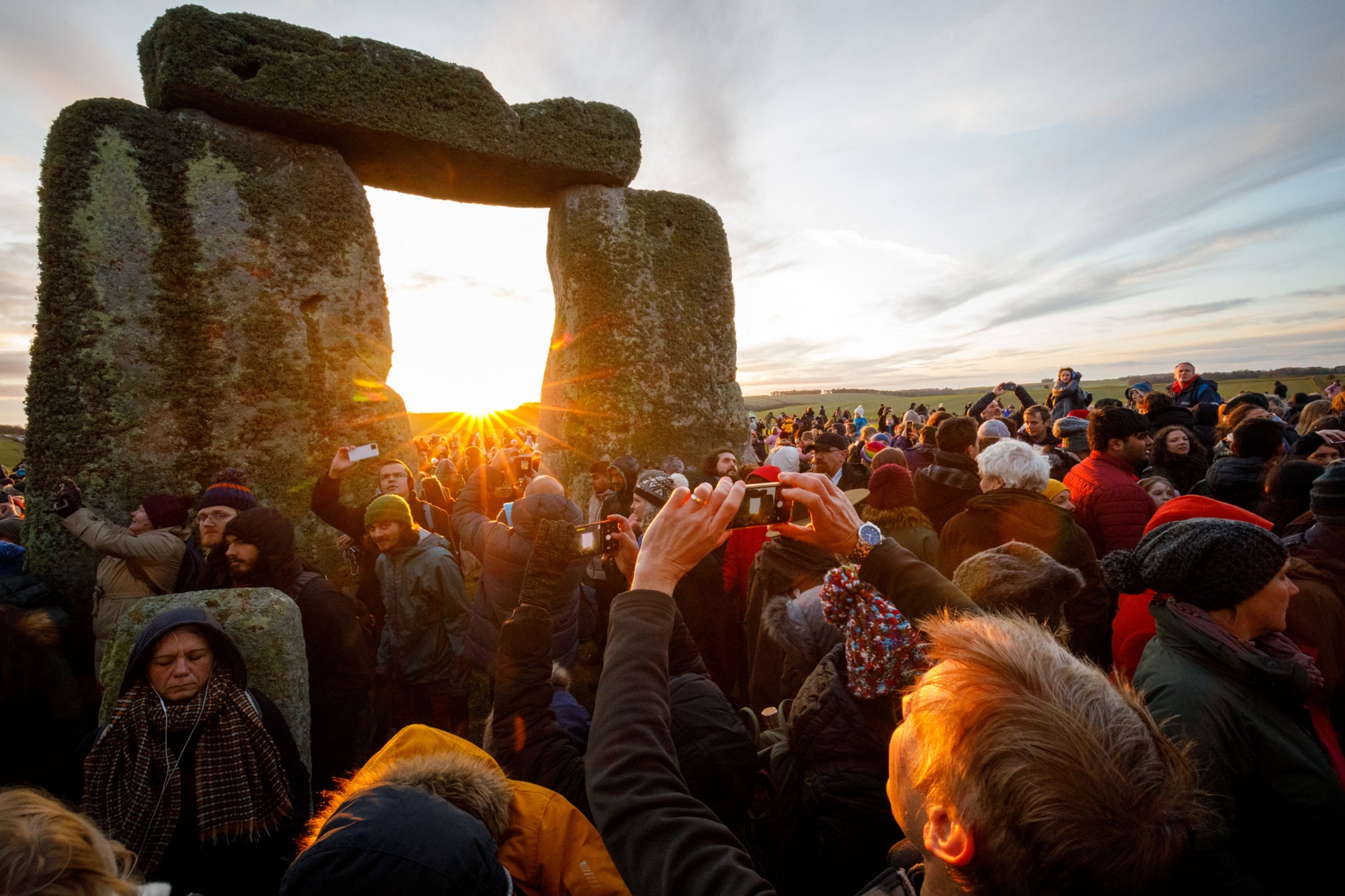
34/50 22 December 2019
People gather at Stonehenge in Wiltshire to mark the winter solstice, and to witness the sunrise after the longest night of the year
PA
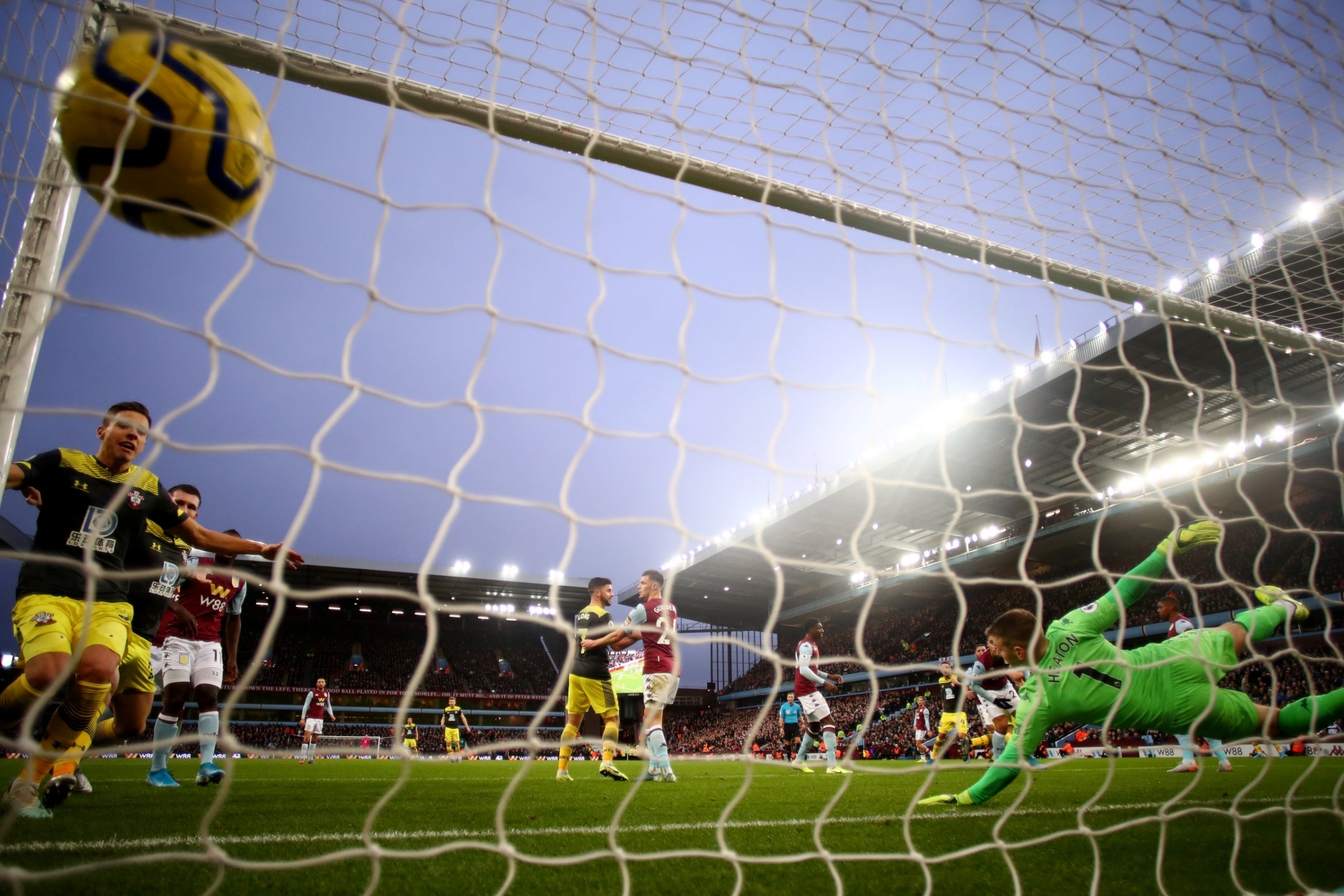
35/50 21 December 2019
Southampton’s Jack Stephens scores their second goal against Aston Villa
Reuters
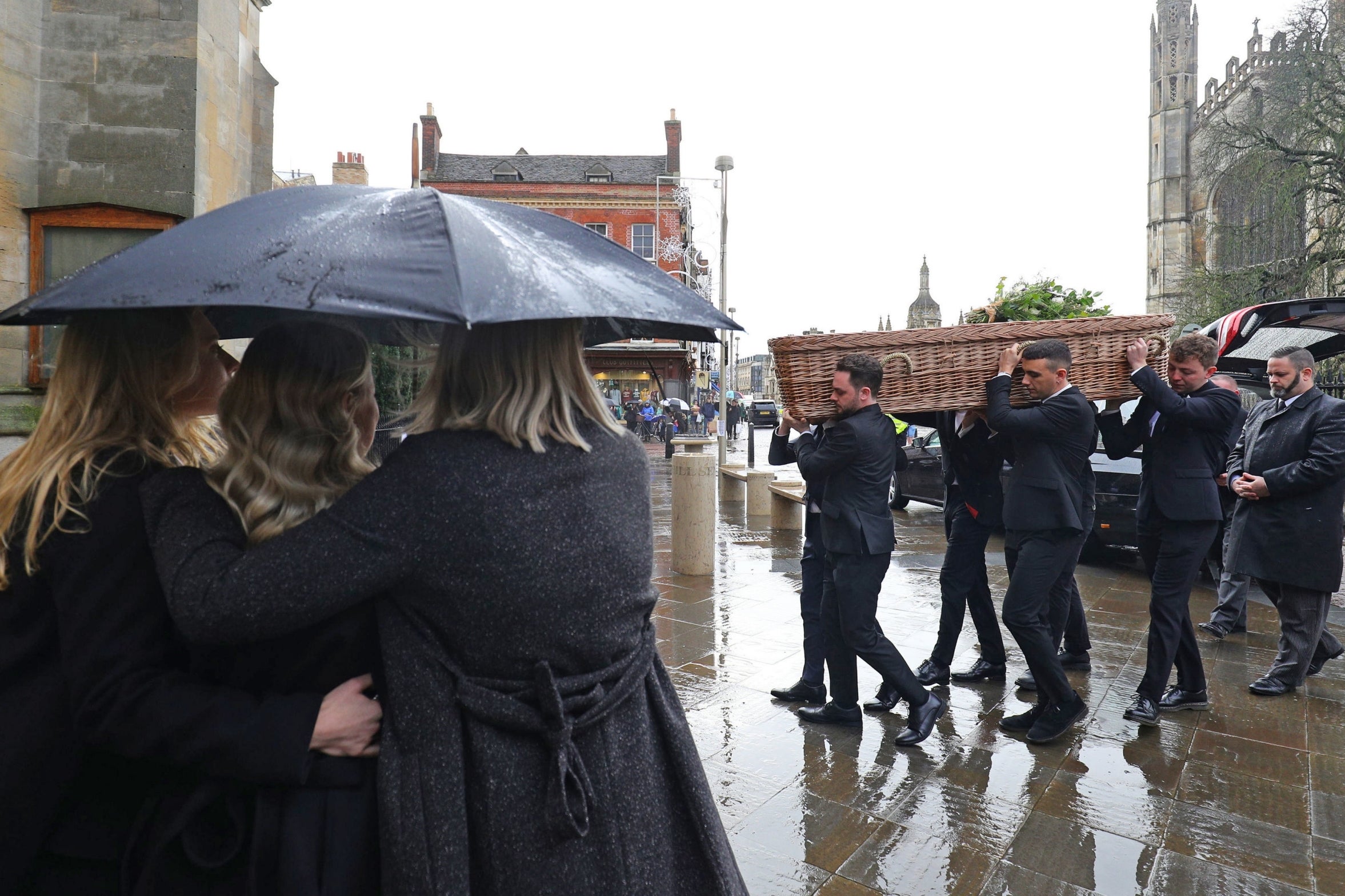
36/50 20 December 2019
The coffin arrives for the funeral of London Bridge terror attack victim Jack Merritt at Great St Mary’s Church in Cambridge
PA
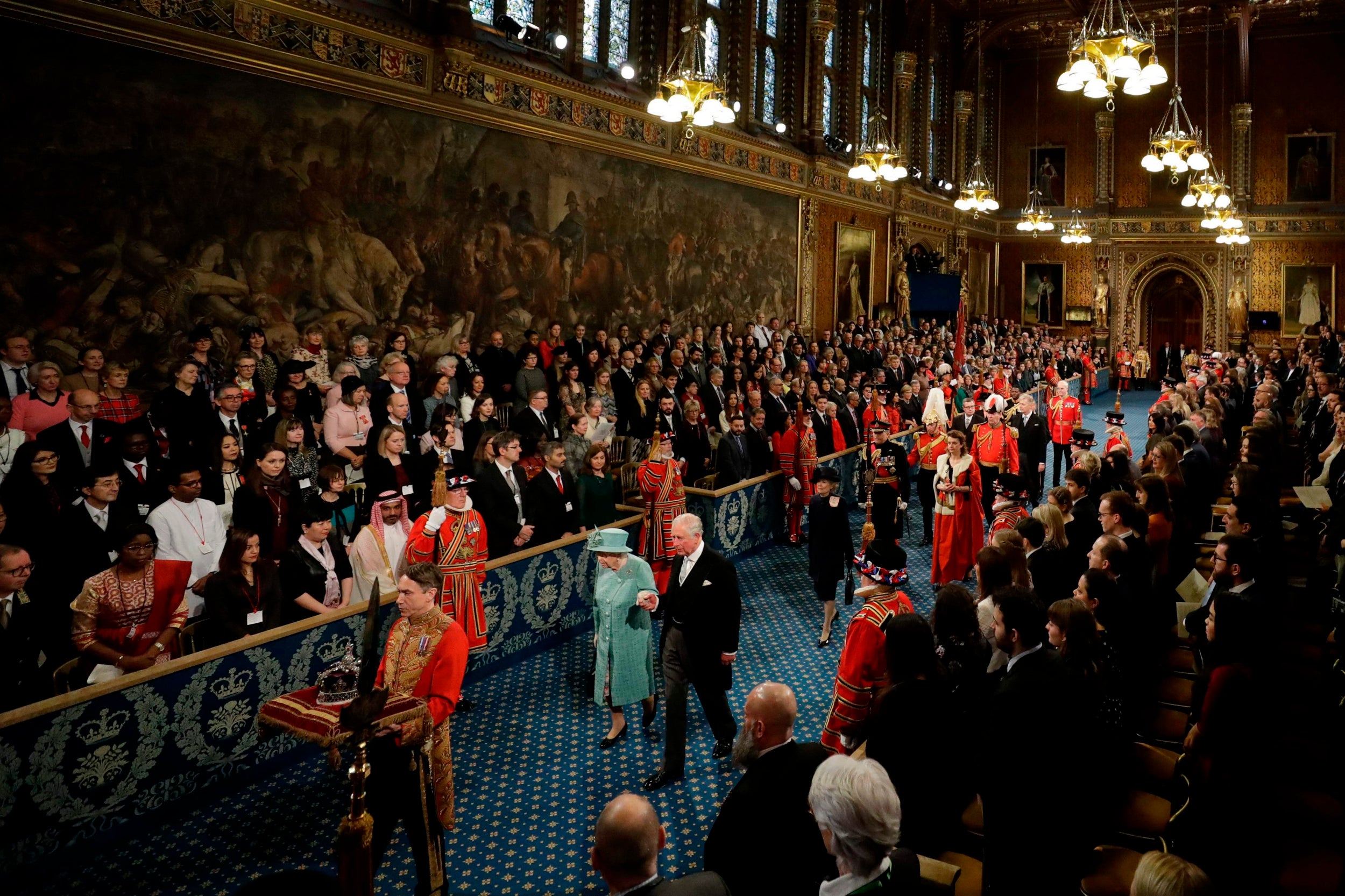
37/50 19 December 2019
Queen Elizabeth II and her son Prince Charles walk behind the Imperial State Crown as they proccess through the Royal Gallery, before the Queen’s Speech, during the State Opening of Parliament
AFP via Getty
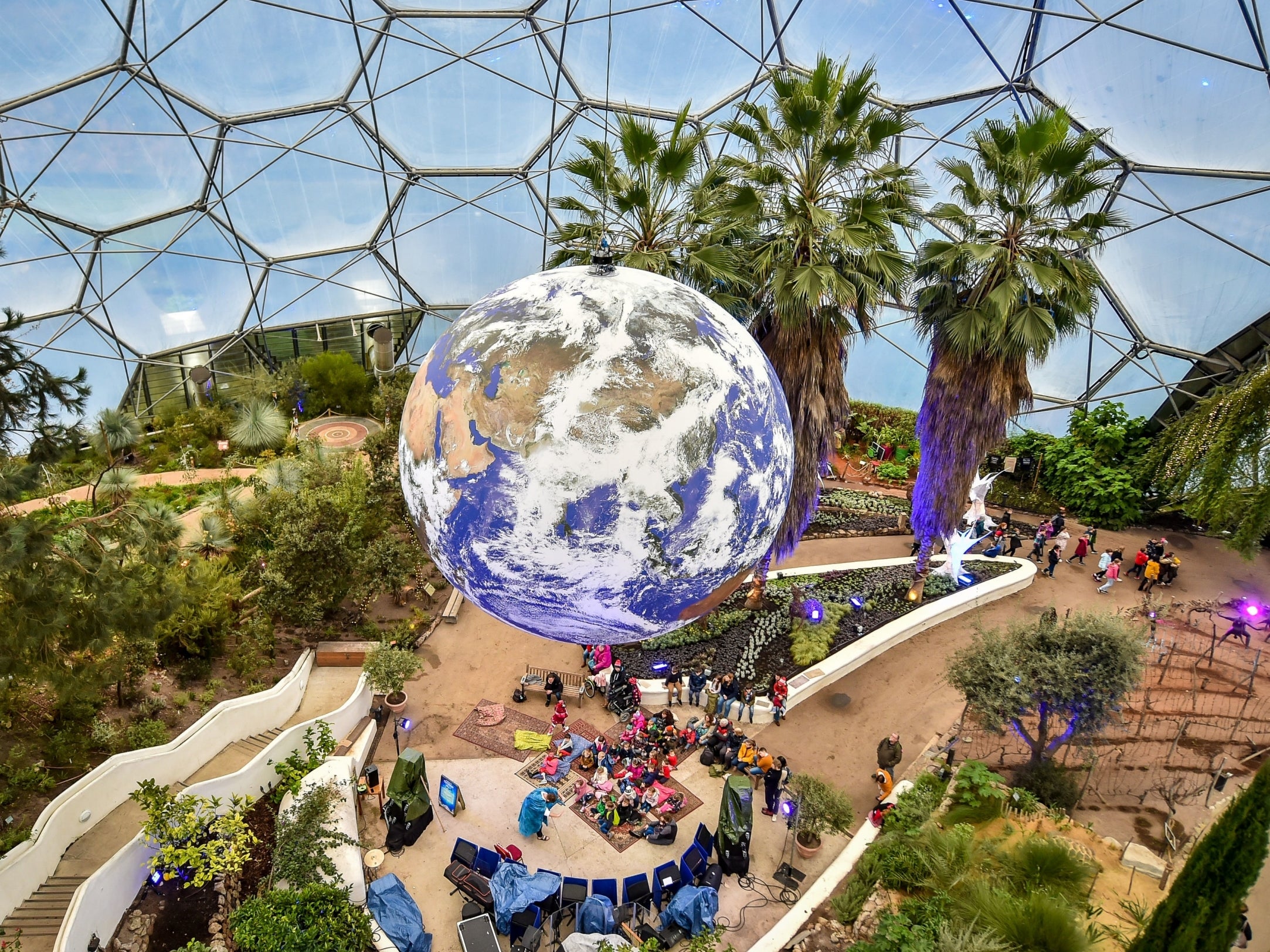
38/50 18 December 2019
Luke Jerram’s art installation ‘Gaia’, a replica of planet earth created using detailed Nasa imagery of the Earth’s surface, hangs on display at the Eden Project in St Austell, Cornwall
PA
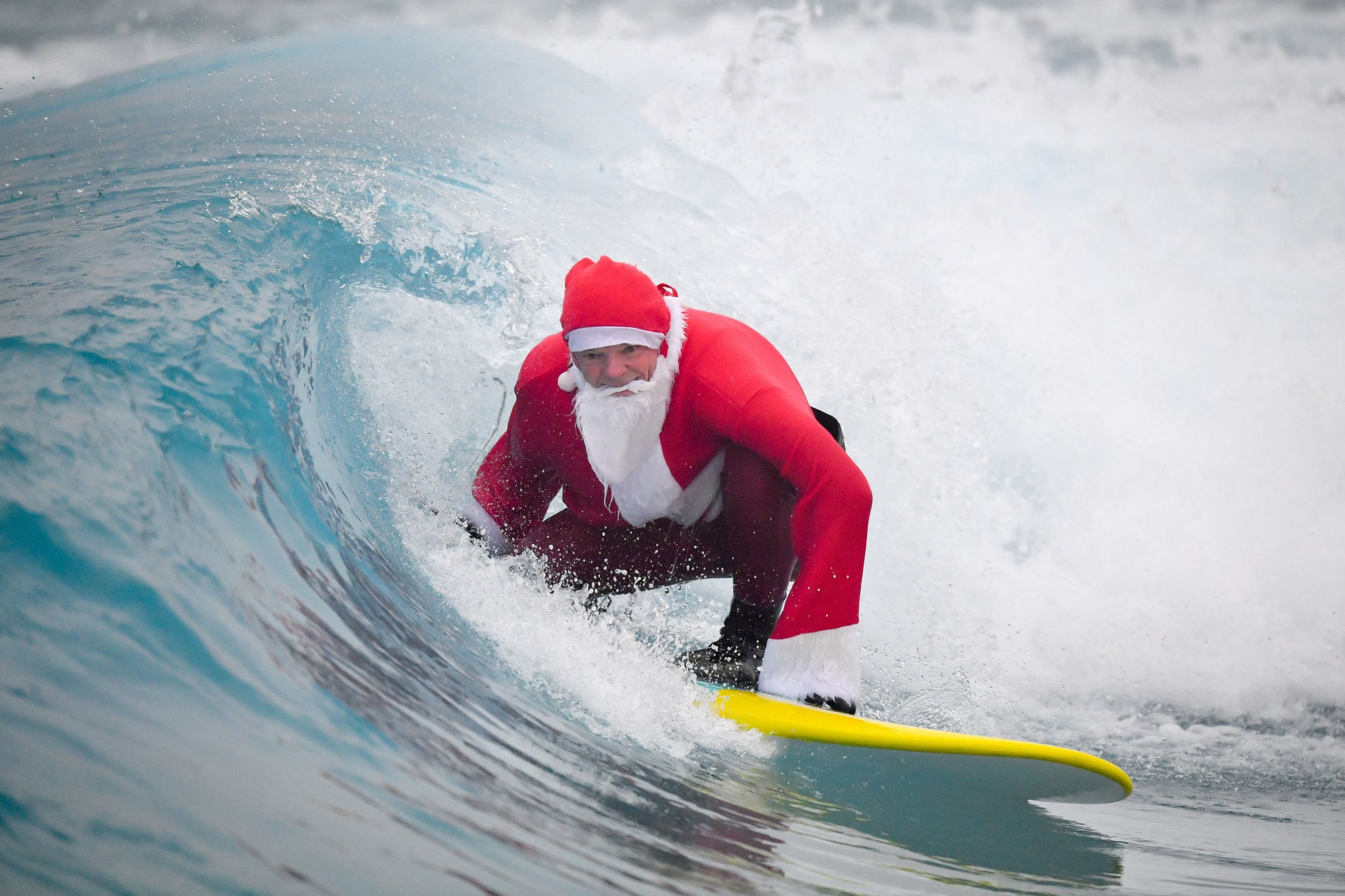
39/50 17 December 2019
A surfer gets into the festive spirit at the inland surfing lagoon at The Wave, near Bristol
PA
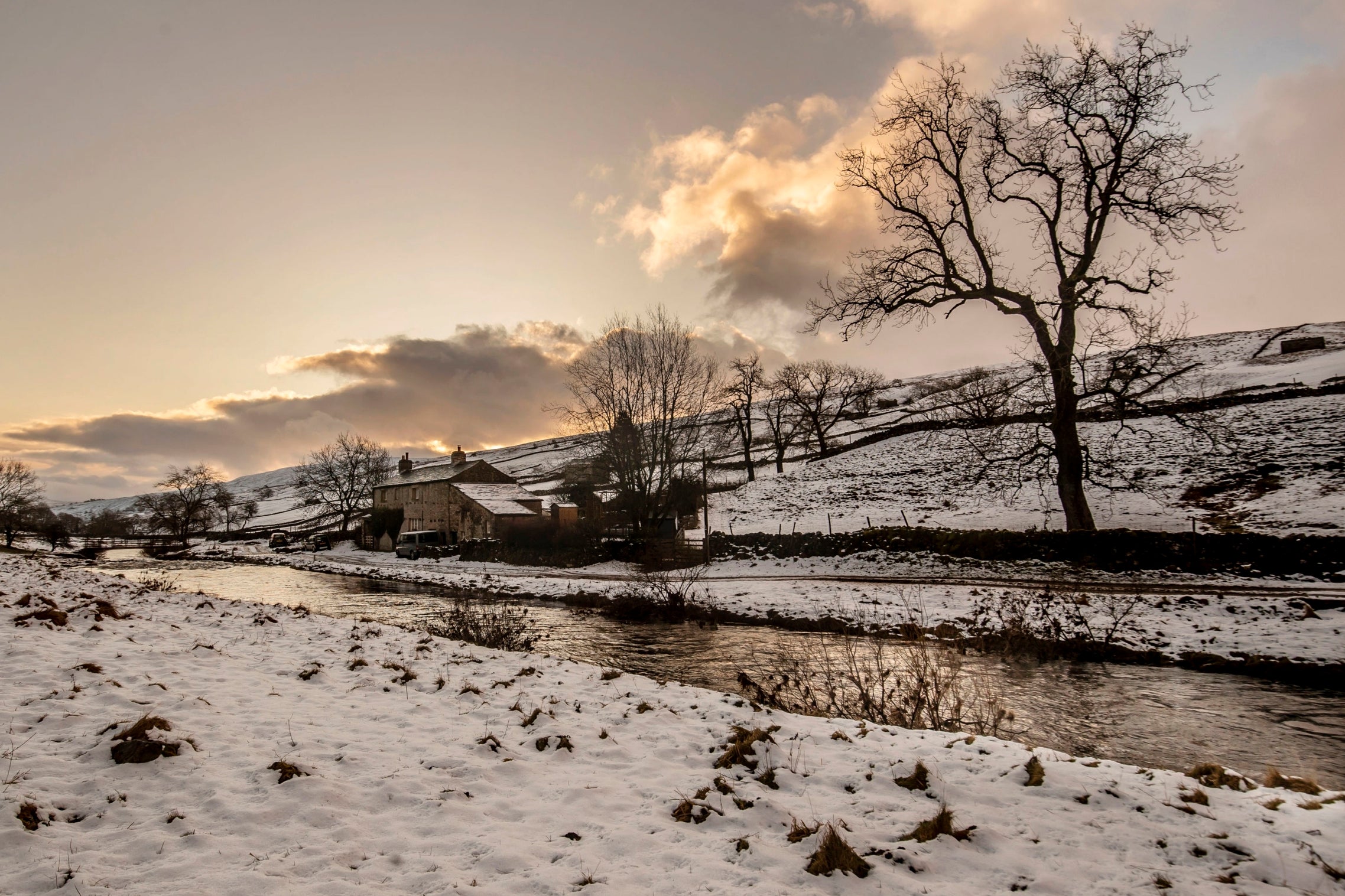
40/50 16 December 2019
Snowy conditions near Deepdale in the Yorkshire Dales National Park as snow hits parts of the UK
PA

41/50 15 December 2019
Oisin Carson, 5, picks a Christmas tree at Wicklow Way Christmas tree farm in Roundwood
PA
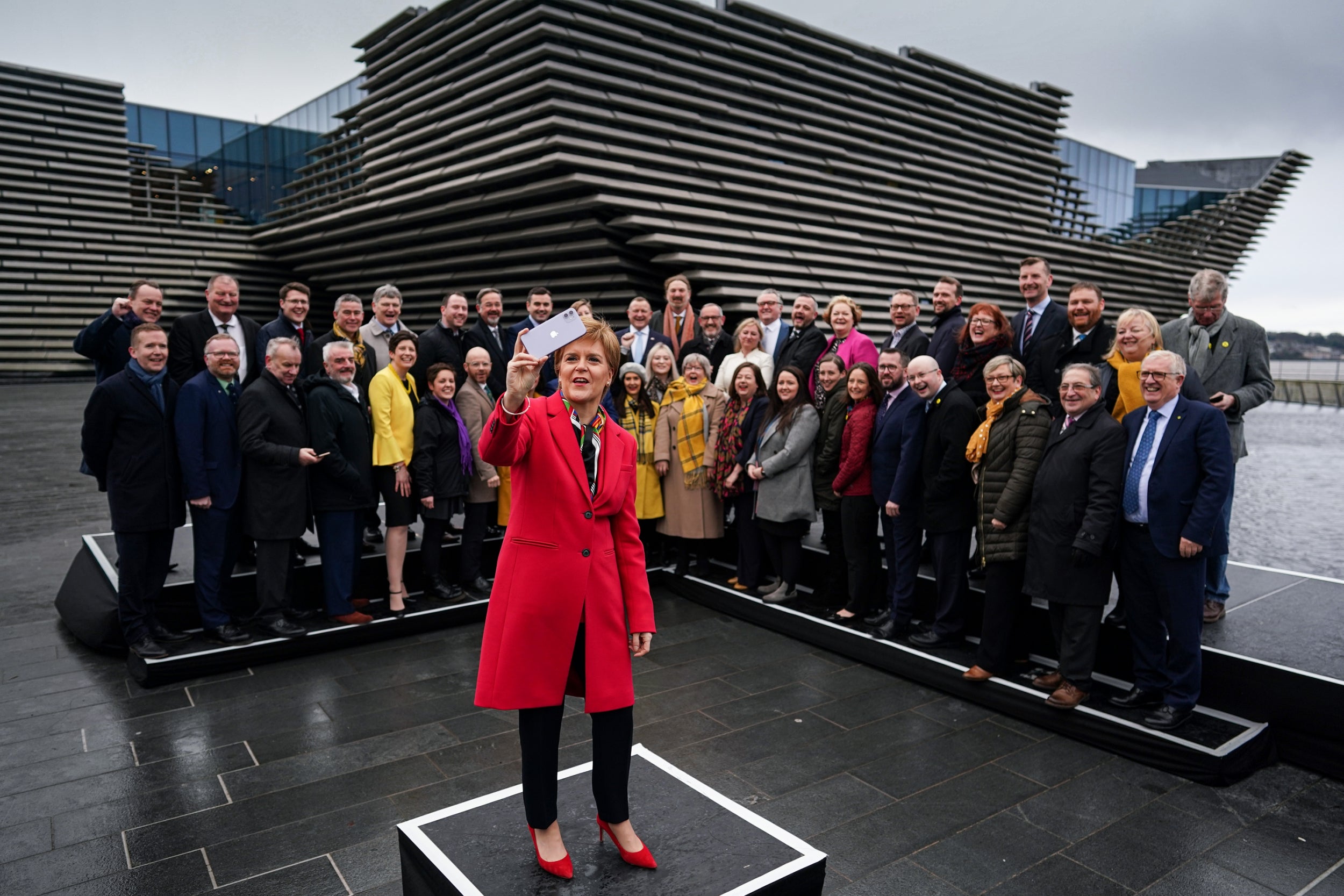
42/50 14 December 2019
First Minister, Nicola Sturgeon, takes a selfie as she joins the SNPs newly elected MPs for a group photo outside the V&A Museum in Dundee, Scotland
Getty Images
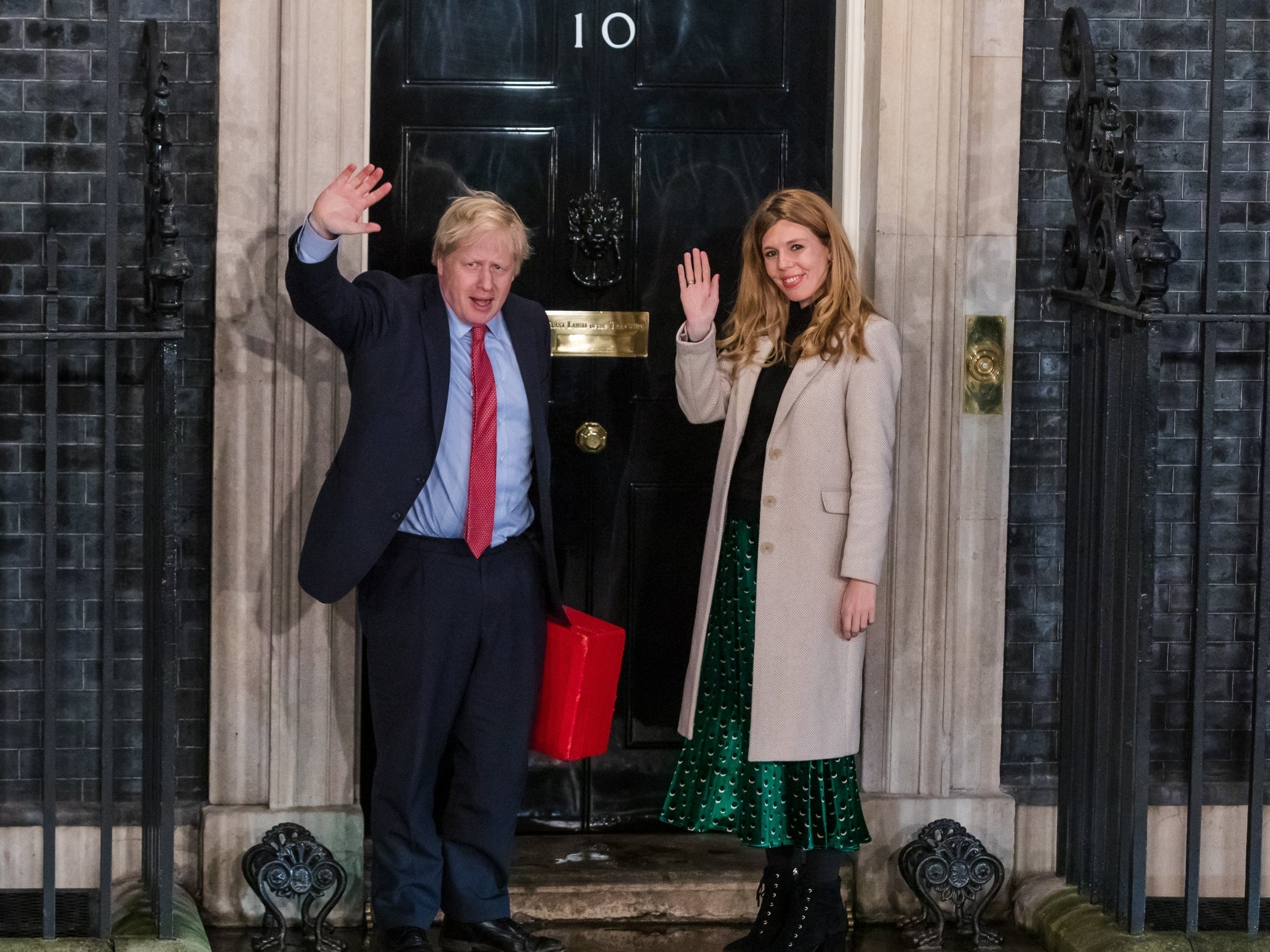
43/50 13 December 2019
Prime Minister Boris Johnson and Carrie Symonds arrive back at Downing Street after the results for the general election were announced. The Conservative Party won with an overall majority
EPA
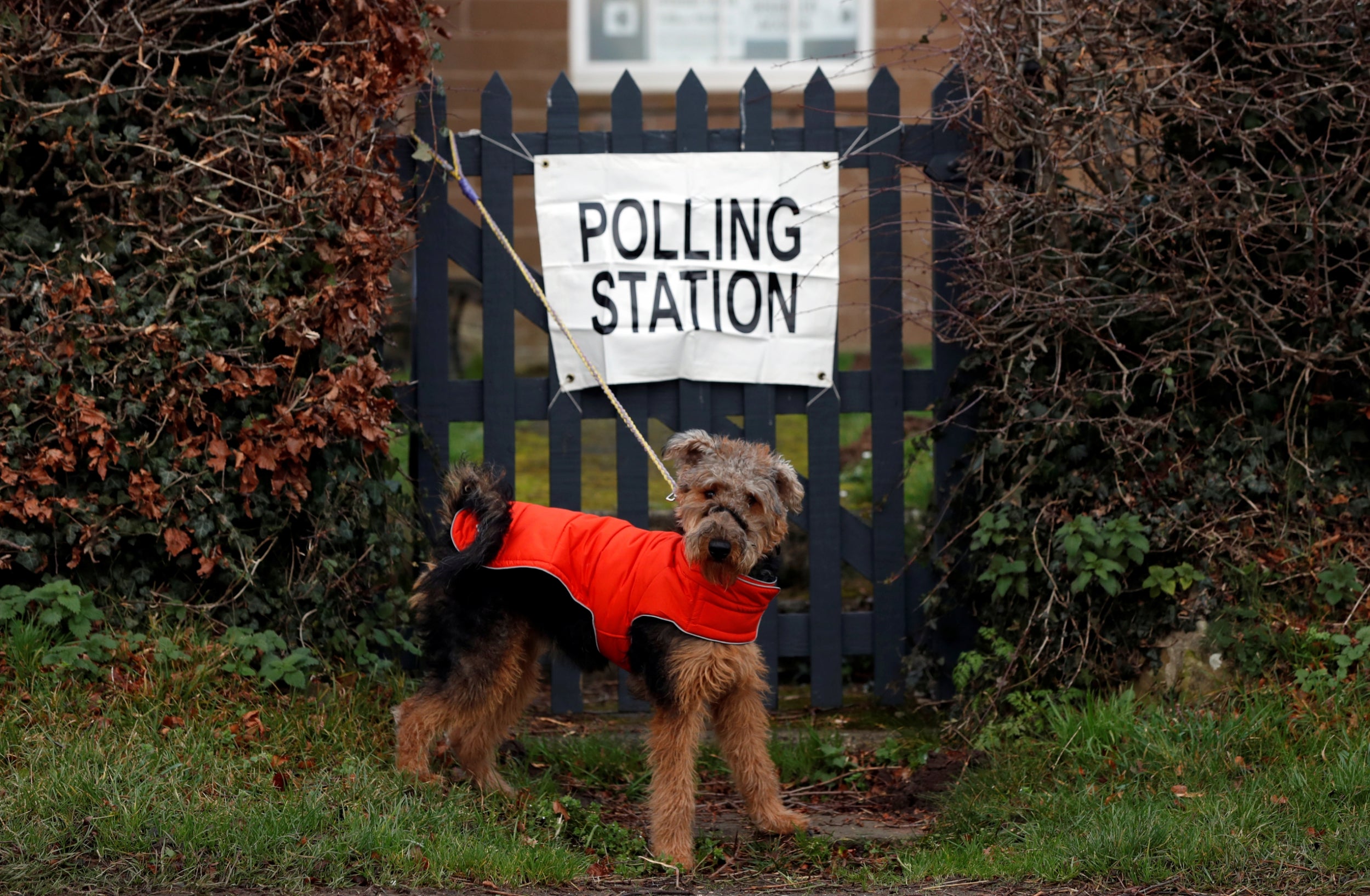
44/50 12 December 2019
A dog outside a polling station during the general election in Northumberland
Reuters

45/50 11 December 2019
Liberal Democrat leader Jo Swinson stands between a Stop Brexit sign as she attends a general election campaign event at Esher Rugby Club, south west London. Britain will go to the polls tomorrow to vote
AFP via Getty
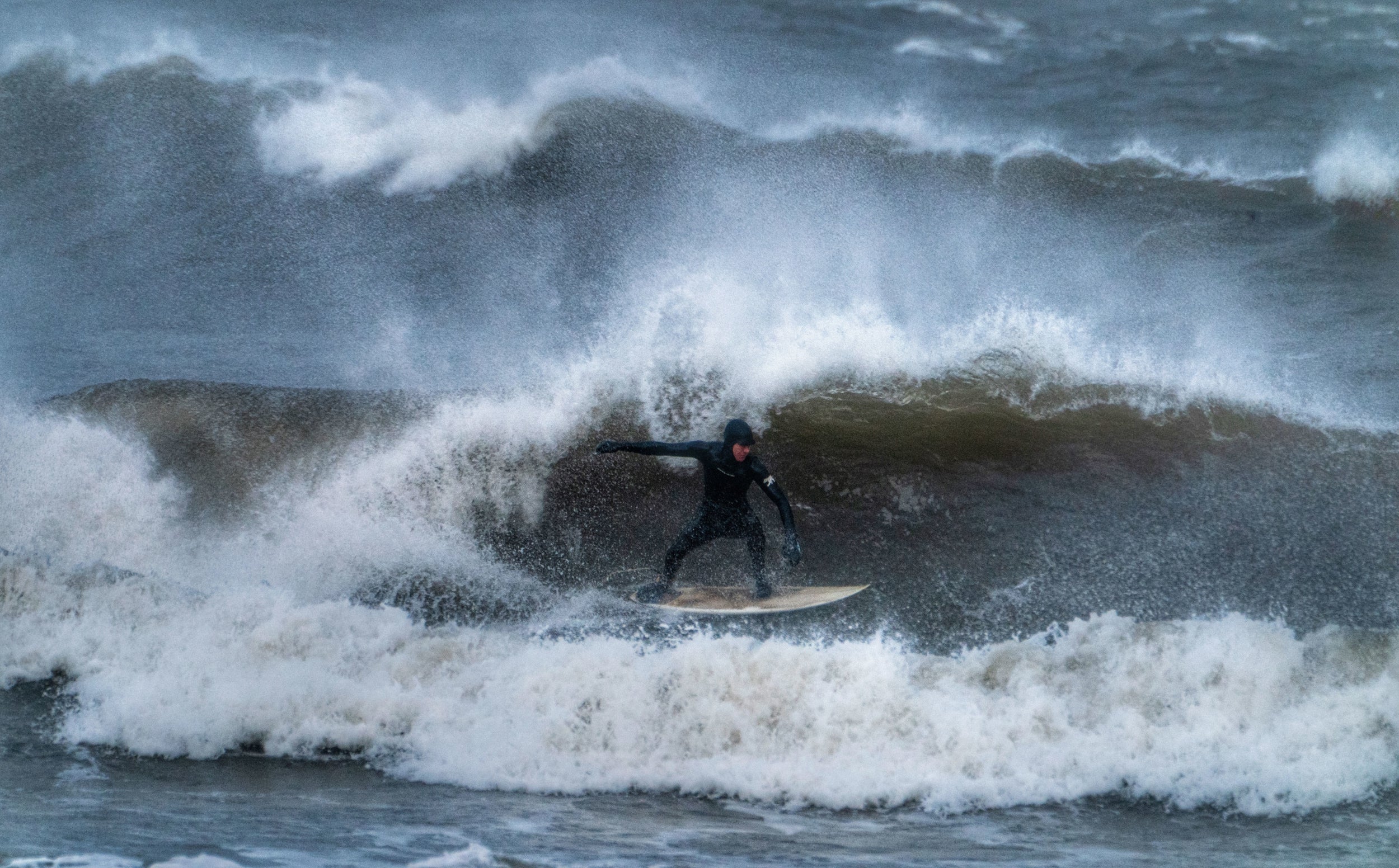
46/50 10 December 2019
A surfer off the North East coast at Tynemouth
PA

47/50 9 December 2019
Leah Rossiter (left) and Ceara Carney, dressed as mermaids, join members of the Irish Wildlife Trust and Extinction Rebellion Ireland protesting outside Leinster House in Dublin, against overfishing in Irish Waters
PA

48/50 8 December 2019
Labour party leader Jeremy Corbyn poses for selfies with supporters at a general election rally in Colwyn Bay, north Wales
AFP via Getty

49/50 7 December 2019
Speedo Mick outside the stadium before the Premier League match between Everton and Chelsea at Goodison Park
Action Images via Reuters
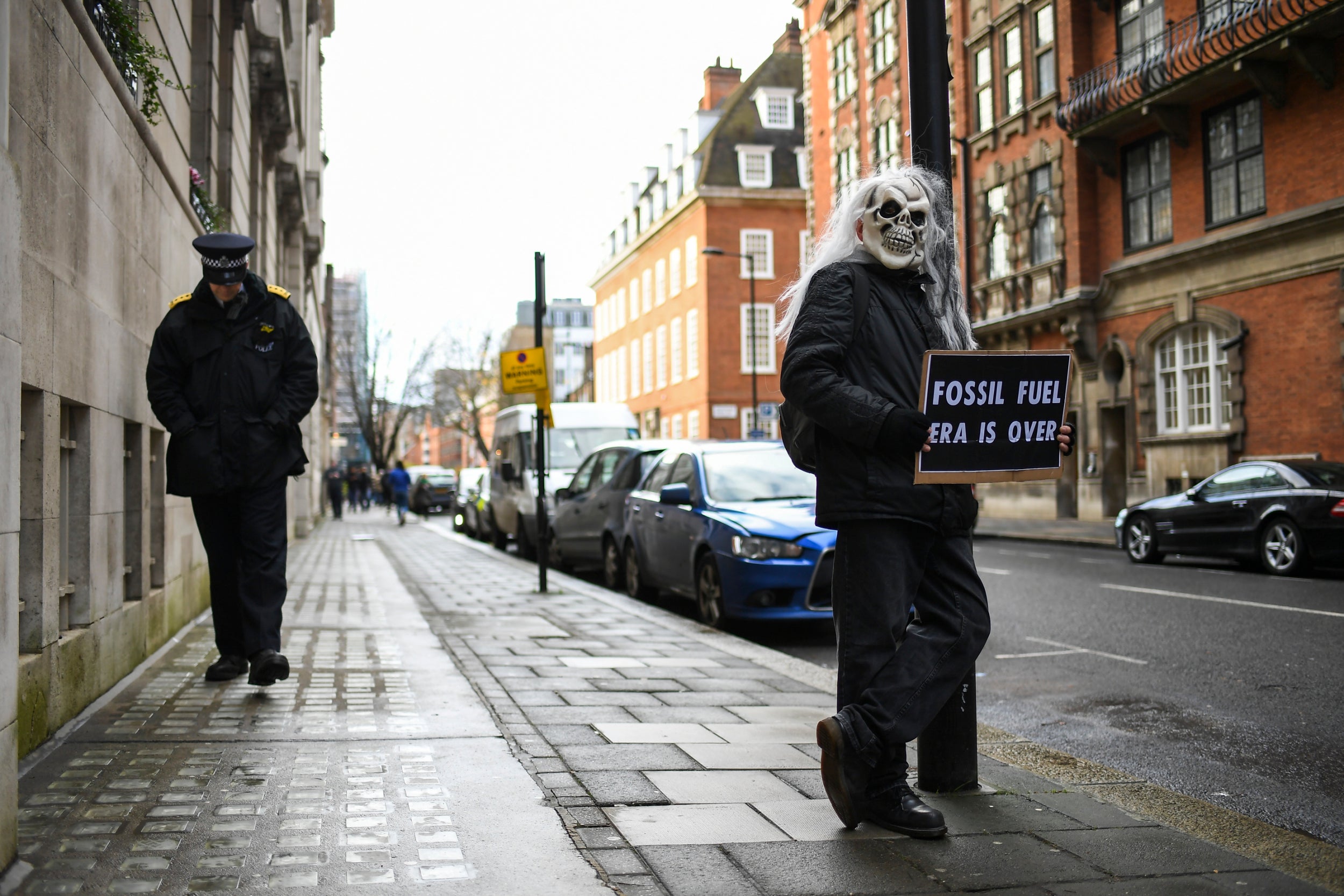
50/50 6 December 2019
A climate activist wearing a mask and holding a placard reading ‘Fossil fuel era is over’ outside Millbank Studios in London
AP

1/50 24 January 2020
Boris Johnson gestures as he watches a performance during celebrations for Chinese Lunar New Year at Downing Street in London
Reuters

2/50 23 January 2020
Gabriella Zaghari-Ratcliffe stands next to her father Richard Ratcliffe, the husband of Nazanin Zaghari-Ratcliffe and his mother Barbara, as they address the media in Downing Street following a meeting with Prime Minister Boris Johnson
PA

3/50 22 January 2020
Rosa Connolly takes a close look during a preview of the Tyrannosaurs exhibition at the National Museum of Scotland, Edinburgh
PA

4/50 21 January 2020
The sun sets behind tower cranes and the London skyline in the city financial district
PA

5/50 20 January 2020
Prince Harry, Duke of Sussex, speaks with Prime Minister Boris Johnson as they attend the UK-Africa Investment Summit at the Intercontinental Hotel in London. Johnson is hosting African leaders and senior government representatives along with British and African businesses during the UK-Africa Investment Summit, aimed at strengthening the UKs economic partnership with African nations
Getty

6/50 19 January 2020
Joe Root celebrates with his England team mates after taking the wicket of Rassie van der Dussen during day four of the third Test against South Africa in Port Elizabeth. He took a career-best four wickets during the day’s play, which saw the home side follow on in their second innings. They trail England by 188 runs going into day five
Getty

7/50 18 January 2020
Drag queens pose on the pink carpet as they participate in the “Queen’s Walk” during RuPaul’s DragCon UK at Kensington Olympia
AFP via Getty

8/50 17 January 2020
Kitty Ross, curator of social history, is pictured reflected in a display cabinet while holding a skeleton violin from the 1880s that forms part of the Sounds of our City exhibition at the Abbey House Museum in Leeds
PA

9/50 16 January 2020
Britain’s Harry, Duke of Sussex (C), hosts the Rugby League World Cup 2021 draw in the gardens of Buckingham Palace in London, Britain, 16 Ja​nuary 2020. The Duke, who is expected to step back from senior Royal duties, spoke with Ruby League ambassadors and children from St Vincent de Paul Catholic Primary School in London
EPA

10/50 15 January 2020
Vehicles negotiate the flooded B4069 road at Christian Malford in Wiltshire after the river Avon burst its banks
PA

11/50 14 January 2020
Huge waves hit the sea wall in Porthcawl, Wales, as gales of up to 80mph from Storm Brendan caused disruption around the UK
PA

12/50 13 January 2020
Puppeteers from Vision Mechanic rehearsing with Scotland’s largest puppet, a ten-metre tall sea goddess called Storm, in the grounds of the Museum of Flight, East Lothian. Made entirely from recycled materials, it was unveiled ahead of its debut at the Celtic Connections Costal Day celebrations in Glasgow this weekend
PA

13/50 12 January 2020
A windsurfer jumps in the air after hitting a wave in the sea off of West Wittering beach in West Sussex
PA

14/50 11 January 2020
Mikuru Suzuki celebrates winning the women’s championship of the BDO World Professional Darts Championships 2020 in London
PA

15/50 10 January 2020
One of seven new lion cubs at the West Midlands Safari Park in Kidderminster
PA

16/50 9 January 2020
Rawson Robinson, from Nenthead, on the Cumbria and Northumberland border clears snow from the model village he has built in his garden
PA

17/50 8 January 2020
People read messages written on the David Bowie mural in Brixton, south London, on what would have been the singer’s 73rd birthday
PA

18/50 7 January 2020
England’s Stuart Broad celebrates with teammate Ben Stokes after the dismissal of South Africa’s Rassie van der Dussen during the fifth day of the second Test cricket match in Cape Town. Stokes claimed the last three wickets in the space of 14 deliveries to wrap up a 189-run win
AFP via Getty

19/50 6 January 2020
Protesters in London take part in a demonstration in support of a British woman found guilty of lying about being gang raped in Cyprus
AP

20/50 5 January 2020
Protesters demonstrate outside the US Embassy in London, after America killed Iran’s general Qassem Soleimani in a drone strike at Baghdad’s international airport
PA

21/50 4 January 2020
Metropolitan police cordon off Charteris Road close to the junction with Lennox Road in Finsbury Park in north London, after a man was stabbed to death on Friday evening, the first murder in London in 2020
PA

22/50 3 January 2020
Protesters, holding a photograph of the leader of the People’s Mujahedin of Iran Massoud Rajavi, outside Downing Street in London after the US killed General Qassem Soleimani in a drone strike at Baghdad’s international airport. Soleimani was head of Tehran’s elite Quds Force and Iran’s top general
PA

23/50 2 January 2020
A keeper counts squirrel-monkeys at London Zoo during the annual stocktake. Caring for more than 500 different species, ZSL London Zoo’s keepers face the challenging task of tallying up every mammal, bird, reptile, fish and invertebrate at the Zoo
AP

24/50 1 January 2020
Peter Wright celebrates winning with the Sid Waddell trophy at the Darts World Championships in London. He stunned Michael van Gerwen to clinch his first title 7-3
PA

25/50 31 December 2019
Surfers at Tynemouth on the north east coast
PA

26/50 30 December 2019
Deer graze in the morning mist as cyclists ride by in Richmond Park, London
Reuters

27/50 29 December 2019
Night sky after the sunset at Whitley Bay in Northumberland
PA

28/50 28 December 2019
The Harlequins players arrive at the stadium prior to the Gallagher Premiership Rugby Big Game 12 match between Harlequins and Leicester Tigers at Twickenahm Stadium
Getty Images for Harlequins

29/50 27 December 2019
A car drives through floodwater near Harbridge, north of Ringwood in Hampshire, after the river Avon burst its banks
PA

30/50 26 December 2019
Participants in the Old Surrey and West Kent Boxing Day Hunt in Chiddingstone. Hunting with horses and hounds is a Boxing Day tradition. Since the fox hunting ban in 2004, modified hunts take place using scented trails for the animals to follow
EPA

31/50 25 December 2019
Swimmers of the Serpentine Swimming Club take part in the Peter Pan Cup race, which is held every Christmas Day at the Serpentine, in central London
PA

32/50 24 December 2019
Shoppers bid for cuts of meat during a Christmas Eve auction in Smithfield market in London
EPA

33/50 23 December 2019
Reggie the dog is rescued with a boat from flooding at the Little Venice Country Park and Marina in Maidstone
AFP via Getty

34/50 22 December 2019
People gather at Stonehenge in Wiltshire to mark the winter solstice, and to witness the sunrise after the longest night of the year
PA

35/50 21 December 2019
Southampton’s Jack Stephens scores their second goal against Aston Villa
Reuters

36/50 20 December 2019
The coffin arrives for the funeral of London Bridge terror attack victim Jack Merritt at Great St Mary’s Church in Cambridge
PA

37/50 19 December 2019
Queen Elizabeth II and her son Prince Charles walk behind the Imperial State Crown as they proccess through the Royal Gallery, before the Queen’s Speech, during the State Opening of Parliament
AFP via Getty

38/50 18 December 2019
Luke Jerram’s art installation ‘Gaia’, a replica of planet earth created using detailed Nasa imagery of the Earth’s surface, hangs on display at the Eden Project in St Austell, Cornwall
PA

39/50 17 December 2019
A surfer gets into the festive spirit at the inland surfing lagoon at The Wave, near Bristol
PA

40/50 16 December 2019
Snowy conditions near Deepdale in the Yorkshire Dales National Park as snow hits parts of the UK
PA

41/50 15 December 2019
Oisin Carson, 5, picks a Christmas tree at Wicklow Way Christmas tree farm in Roundwood
PA

42/50 14 December 2019
First Minister, Nicola Sturgeon, takes a selfie as she joins the SNPs newly elected MPs for a group photo outside the V&A Museum in Dundee, Scotland
Getty Images

43/50 13 December 2019
Prime Minister Boris Johnson and Carrie Symonds arrive back at Downing Street after the results for the general election were announced. The Conservative Party won with an overall majority
EPA

44/50 12 December 2019
A dog outside a polling station during the general election in Northumberland
Reuters

45/50 11 December 2019
Liberal Democrat leader Jo Swinson stands between a Stop Brexit sign as she attends a general election campaign event at Esher Rugby Club, south west London. Britain will go to the polls tomorrow to vote
AFP via Getty

46/50 10 December 2019
A surfer off the North East coast at Tynemouth
PA

47/50 9 December 2019
Leah Rossiter (left) and Ceara Carney, dressed as mermaids, join members of the Irish Wildlife Trust and Extinction Rebellion Ireland protesting outside Leinster House in Dublin, against overfishing in Irish Waters
PA

48/50 8 December 2019
Labour party leader Jeremy Corbyn poses for selfies with supporters at a general election rally in Colwyn Bay, north Wales
AFP via Getty

49/50 7 December 2019
Speedo Mick outside the stadium before the Premier League match between Everton and Chelsea at Goodison Park
Action Images via Reuters

50/50 6 December 2019
A climate activist wearing a mask and holding a placard reading ‘Fossil fuel era is over’ outside Millbank Studios in London
AP
“I personally think we can find a solution which does allow them to have some role and which doesn’t send the Americans off the other side of the diving board.”
Mr Pompeo will meet Mr Johnson and Dominic Raab, the foreign secretary, on a trip to London this week.
Mr Johnson discussed the security of telecommunications networks in a phone call Mr Trump last week, according to the White House.
Last year, the US imposed trade restrictions on Huawei over concerns about the company’s security and ties to the Chinese government.
Allegations that their telecommunications equipment could be used to spy on people has been repeatedly denied by the tech giant.
Source: UK Politics - www.independent.co.uk


